#but in prince of egypt they showed us the way so much of what moses used to know as the truth had to be sacrificed for Gods plan to deliver
Explore tagged Tumblr posts
Text
Thinking about how DreamWorks perfectly captivated the brotherly relationship Moses had with Rameses in Prince of Egypt and the pained expressions and the conversations they had and the fact that even Moses was still questioning why God chose him because that would mean he would have to be separated from his brother once again and-
#dreamworks#prince of egypt#moses#the bible#the movie was so amazingly made og kudos to dreamworks#you wont usually see those scenes in the bible bcs its like theyre explaining it and summarizing it and you wont understand it#but in prince of egypt they showed us the way so much of what moses used to know as the truth had to be sacrificed for Gods plan to deliver#<the hebrews#THE MUSIC MWAA#even in the music you can see and understand plainly how deep everything is#i understand now why prince of egypt was my favorite dreamworks movie lol#yellow talks#yellow rants
12 notes
·
View notes
Text
I got the first 2 episodes in of "Rings of Power" s2 and they were amazing!!! 😀 Worth waking up at 5 am to watch. LOL I still got ep 3 to watch and will this afternoon, but need to get my thoughts out here behind a cut, but so happy with s2 so far. Not tagging all the characters, as it seems to think too many is spam, so hopefully this goes in the tags and I talk about most.
First off, I loved seeing Sauron's backstory in ep 1!!! 😀 I mentioned before in my other posts that I'm a fan of Jack Lowden's and it was great getting to see him after the version Adar knew. I only expect Jack back in flashbacks if he's able, even more so seeing a new interview with Charlie this morning assuring fans that he won't be recast. The whole prologue explained so much about what happened with Adar, and then Sauron reforming eventually into Halbrand. Also confirmed he really was going to Númenor on his own, and his meeting with Galadriel really was by chance so those theories he planned it all along were wrong.
Charlie's doing amazing too both as Halbrand and now as Annatar. I loved all the shoutouts too to "The Silmarillion" and other 1st Age stories about him, including him being The Lord of the Werewolves and able to talk with that wolf. Then the Bible references as we knew about the Annatar transformation scene looking like Jesus and angel paintings, but also the "Let My People Go!" scene fit with Moses and especially the "Prince of Egypt" movie, which I love too. But also realized at times they way they're doing (and Tolkien wrote) Sauron rising from nothing to being aids to kings is so similar to the Bible story of Joseph, and the musical "Joseph and the Amazing Technicolor Dreamcoat" (which my high school did an amazing version of that music my junior year of high school LOL). So I loved all of this and everything we saw with Celebrimbor in ep 2.
Then with Galadriel!!! 😀 OMG, first I have to mention about those Haladriel scenes!!! We knew the rings were going to connect them, as well as their mental bond in general, but now she's seeing visions and knows Sauron is in Eregion and saw him there. Plus, hearing him call her name in that vision, and confirming that she can read his mind, and him hers (as he knew the rings worked). Then the big one where Galadriel confessed to Elrond about how she feels about Halbrand/Sauron (and still used his Halbrand name) and it clearly was showing us that she fell in love with him by using that flashback to the "I felt it too" scene, and that's why everything that happened and being deceived hurt her so much. And Elrond knows now, which is why he and Gil Galad are being like that to her now as they don't trust her around Sauron anymore and think she'll turn. Loving that we're getting scenes about Haladriel even if they both are actually in the same place.
Then I loved the scene with the rings and showing they are good and worked to help restore the elves. Absolutely love Círdan too and being a mentor to Elrond. Him talking about more 1st Age characters and their flaws was great too. LOL
The storyline with The Stranger, Nori, and Poppy is great too. He's got to be Gandalf. I thought this the whole time but every scene I see of him just confirms it to me.
Pretty sure Ciarán Hinds' character is one of the Blue Wizards. The show did supposedly get the rights to use the Blue Wizards stories that Tolkien wrote in "Unfinished Tales" and one of the 2 Blues went evil in the 2nd Age in Rhûn, similar to how Saruman did in the 3rd Age. So I'm pretty sure that's what we're seeing him and that he found a cult with the Mystics.
Then loved seeing more with Durin, Disa, and the dwarves. It's setting up Sauron/Annatar giving them the 7 rings, and the making of the Doors of Durin too. Also very cool seeing Narvi too and the female dwarves having facial hair similar to more male elves having long hair (this didn't bother me like it did other fans but cool to see them add it). Though also really sad about the singing not working.
So now getting ready to watch ep 3 this afternoon and I saw from the description that it involves other characters we haven't seen yet from s1, and then I'll be caught up till ep 4 next week.
#the lord of the rings#the rings of power#spoilers#haladriel#halbrand#sauron#galadriel#galadriel x halbrand#annatar#celebrimbor#elrond#cirdan#the stranger#gandalf
33 notes
·
View notes
Text
We need to make "explain but doesn't excuse you" a more popular sentence
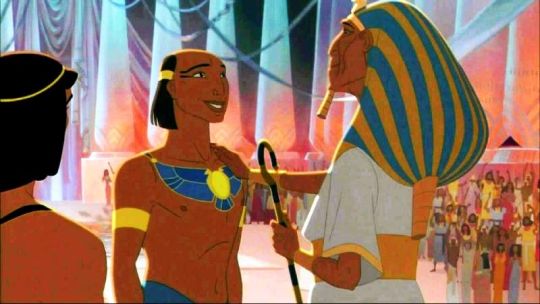
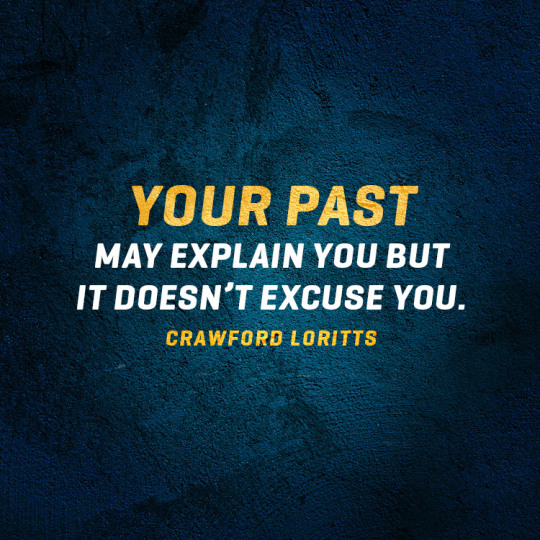
I was thinking back to my list of favorite characters, and how I have people like Rameses in it and thought to myself "Why do I like this guy again...?" and then I started to recall why I was so into his story, and honestly ended up liking him even more.
Something that I noticed about the way writers try to handle backstories nowadays, is that they love to use a sad past to make people be on a character's side and then proceed to absolve them of their crimes.
Like, we love redemption arcs, we love character development, we love bad guys turning good... But I feel like we might love it a bit too much, as if we were waiting to forgive a character for all they did before even getting to them realizing the mistakes they made.
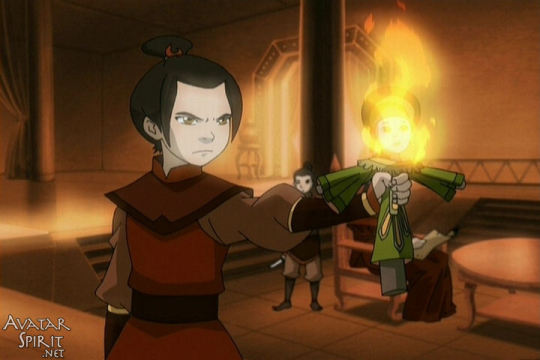
People love picking a villain they're into and going "Oh, it's not their fault, it's because they were raised that way, it's because they were abused as kids, it's because they lost someone they loved, it's because society treated them like trash, it's because they never had friends, it's because their girlfriend dumped them on Christmas eve..." and so on.
There is an obsession with "My character did nothing wrong because their past justify their actions!"
And here's something people tend to forget. A past explains one's actions but doesn't justify it.

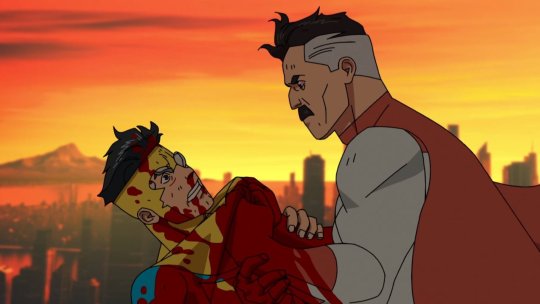
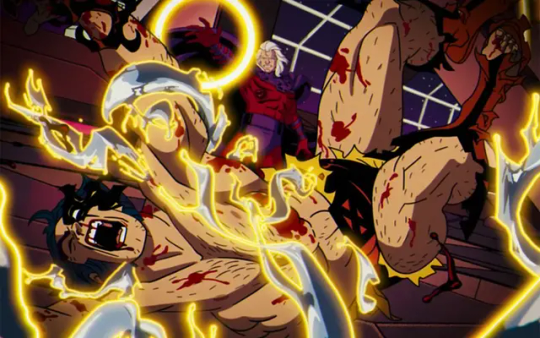
Being abused by society, being trained by terrible morals, being oppressed and attacked... they all explain why someone would think it's okay to hurt others, but doesn't actually justify them hurting others.
Just because we know why someone's doing all the things they do, doesn't make the stuff they do any less bad.
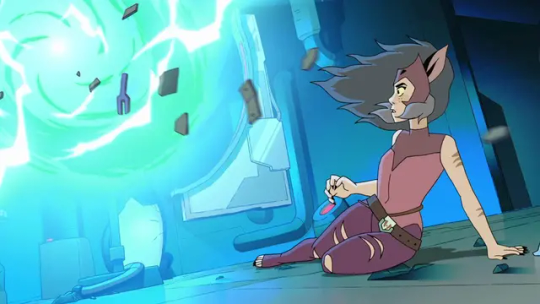
This is why I love Rameses. They show the human side of him, they show he wasn't just born evil, they show that he could have been a decent person if he just had the right people to raise him.
They could have so easily made him just a cartoon villain who happened to be born evil and take joy in making others suffer under his command, but no, they show how he became this way, how he went from just a regular kid to a tyrant unable to feel sorry for others' pain and suffering, who was so brainwashed by the traditions of his family that he couldn't even process the harm he was bringing to others and why he couldn't even see the slaves as actual people in agony.
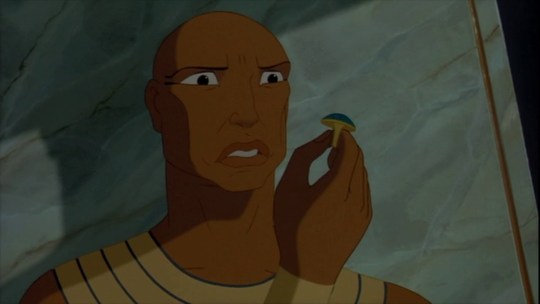
And, again, what I like about this story is that they explain how he became this way, but they don't paint him as blameless. The story acknowledges that he has blood in his hands, even if he himself doesn't, and it makes sure that he pays for what he did, even if what he did was the result of a long process of terrible lessons being passed down by generations that he didn't start.
At some point he became an adult, he became free from his father's command, free to make his own choices, and free to listen to the right people, free to look at what his actions were causing...
He had agency for his choices... And he still made the wrong decisions.
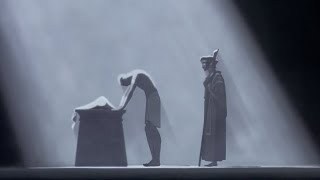
I feel like if others tried to tell this story today, they would either have made Rameses more evil from the start so you wouldn't feel bad for the tragedy that befalls him, or they would give him some sort of realization where he thinks about the harm he did and develops a change of heart in the last second.
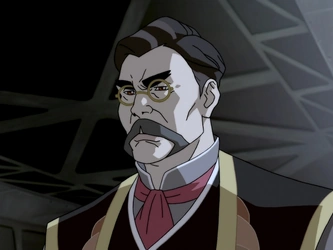
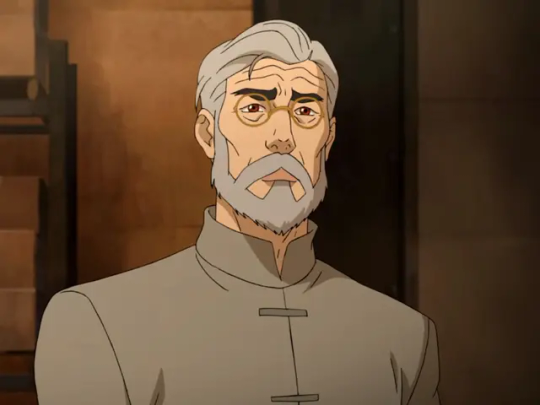
I keep thinking about how there was a group of people going "Azula did nothing wrong!" when the new live-action Avatar show started and they basically tried to move all the blame from her to her "big bad evil father."
It makes me wonder if they released Prince of Egypt today, if there would be some sort of revisionism where people would try to argue that Moses is the villain for "not saving his brother" or something like that.
To the point I'm beyond curious about how things are going to end up in Arcane, since that series has a very similar story with two siblings that ended up splitting apart and reuniting but realizing that they were completely different in the paths they chose to follow, with one trying to fix the errors from the past and the other embracing them and trying to view them as part of who they are.
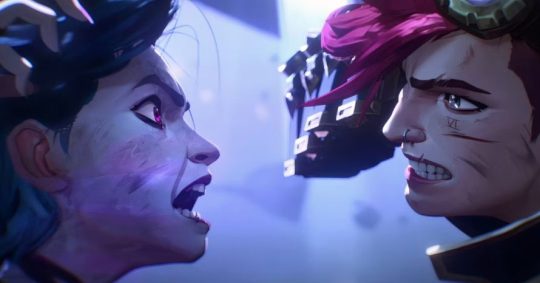
Is Arcane gonna go all the way and make Jinx an irredeemable monster that needs to be taken down, or are they gonna try to pull a "deep down, Powder is still there!" stuff?
I really hope they don't. I hope they give her an ending similar to Rameses where he's defeated but doesn't even get the luxury to die, just left alone and powerless while watching his most beloved family member moving on with his life while he's still stuck in the past and suffering the consequences of his actions and realizing that he achieved nothing.

And what I especially like about his ending is that even at this point he still doesn't realize why he's being punished so much, just showing at full power the danger of ignorance and refusing to see what's right in front of you.
It would be a terrible tragedy, but I think it would make for a great message.
#rameses#prince of egypt#your past may explain you but doesn't excuse you#the prince of egypt#explanation isn't justification
25 notes
·
View notes
Text
Why The Prince of Egypt Suceeded As A Movie , Not just as an Adaptation of the Biblical Story

I watched this so many times, that it awoken the complicated feelings of empathy, sympathy and conflict in me. I have watched so much reaction videos about this and no disrespect to Christians (I grew up Christian btw) however I think that a lot have missed the point of Ramses as Moses' family and instead took the original Biblical passage to heart so much, that the complicated themes were sort of thrown out the window.
Biblical stories are a little tricky to adapt. People who grew up exposed to the religion know what it was like watching those animated shows and videos of biblical stories and how in your face the religion is. I still remember watching the dubbed version of Super Book (if ya know, ya know). There is a whole subject dedicated to just studying Christianity, carrying bibles and learning and relearning passages, assigned reading at weekly masses, and having quizzes about the homily everyone slept on after the holy communion (it was supposed to be wine, but they probably made is drank grape juice with some water, the "bread" is a little piece of wafer that just disintegrates in your tongue the moment you eat it).
I speak for this very specific audience, I know. To the people who didn't, this is what it was like. But funny enough, not once did they play the Prince of Egypt for us. Actually, I remember some of my peers not liking it, and they were hardcore Christians, by the way, like voluntarily praying in cathedrals. Yet, I have also heard people who aren't even Christian LOVE this film. It's just a beautiful film of so many other aspects.
I found it ironic that the complicated parts of the story was the hardest part to really understand. Yet there I was, 12 years old, one of the ones who weren't so devoted to the religion, binging this movie. I wanted to understand those complicated feelings, especially with Ramses and Moses.
Let me discuss the emotional stakes here and how sad and sympathetic everything was.

First, I am glad that Moses was really portrayed to be part of the royal family. That's what a lot of the adaptations did not take on with creative liberties with, Moses was always portrayed as a snobby prince in the first act. Moses was Ramses' brother and best friend, and you can tell how much they trusted and loved each other. They were really a family. Ramses, despite being older, looked up to Moses, as he was there for him ALWAYS. The love they shared was so great that it made the movie so sad. Their destinies to be enemies were so heartbreaking.

Now Ramses. Hey, I do not condone any of what he had done. However, he was a result of his upbringing. Pressured to be Pharaoh, all his life, his belief that slavery was just hard laborers to a good cause they are building was passed down to him. I can not blame him entirely for growing up to be what he is. The tough love was so tough, there was NO love. That man got daddy issues, he really promised to make an even greater Egypt than what his father built by literally having a larger monument of him than his father's. Its like Homelander and Gus, the need for approval of a father was so rooted in Ramses, it lived on even after his death. Let me also say there was no changing him, even when Moses was still in his life. Moses was also brought up like him. The beliefs passed down were the same, and they were raised in the same environment after all. But like any other two people living in the same system, they were bound to be different, but no one could have prepared their fate to be against each other in the future.
No matter how many scenarios we can make up for both of them to still be brothers and not be enemies, there was really nothing that could change what was going to happen.

It hurt to see how happy Ramses to see his brother, welcoming him with open arms, not as Pharaoh but a brother. Moses, too, I could not imagine having to do that to his adoptive family, his beloved brother, and best friend.
But well, they OUTGREW each other, but damn they really just had to be enemies, huh?
I will say, making them brothers makes sense how Moses got away with the plagues of Egypt. Not just because he WAS royalty of them or just because the Pharaoh was so stubborn, but because even when Ramses is Pharaoh, he loves Moses so much, even with resentment. He could never imagine to eliminate or to imprison him. I appreciate the writers connecting that and it was so much more impactful for the story.
Only when Ramses' son was gone where the hatred overcame him to really attack the Hebrews.

Oh, the taking of the first borns. It was a brutal crime for Ramses's father and predecessor to eliminate the first borns of the Hebrews, but it was just as brutal for God to take the first borns, too. The scene where Ramses lay his son's body to be then mummified and Moses even trying to console him, only to be hissed at (UNDERSTANABLY). He set the slaves free, yes, but this is an important scene that no one really won. Moses broke down, we know he never wanted this, he couldn't get through Ramses but this didn't have to happen. Ramses was stubborn and prideful, yes, but he is still a father. He is overcome with extreme hatred at this point, that Moses is not his brother anymore, but a man who is responsible for his son's death.
Damn, Ramses loved his son the way his father never did. I feel like he raised his son like the way he and Moses had fun. Those small scenes of pure affection and adoration for his son, his son was always involved in the kingdom, always hugged and protected by him and just before the scene where Moses turned the lake into blood, you can see him and his son bonding and just having fun. That essence of fun literally could have only come from his bond with Moses, which DOUBLES the sadness. Man, my overthinking makes this way too harsh on me.
Nonetheless, that "death" scene should never have been glamorized and I am glad that it was portrayed like that. Its not sweet revenge, it was brutal. No one had to die, especially children. No one was really happy in this scene, even with the grant of freedom.

The animation, by they way, I learned that it was a mix of PAINTINGS and 2D animation, damn those animators should be proud of their work. This is such a masterpiece.
There is another animated adaptation after this, by Dreamworks as well. It was Joseph: King of Dreams. The animation is made to TV level but otherwise okay. I do wish they made one of Queen Esther. If you guys don't know or are interested, pick up the bible. I tell you now, as a literature enthusiast, the bible has stories that should be told in the way Dreamworks succeeded in telling the Exodus story. No fanatic air please.
CAN I ALSO JUST SAY HOW HOT EVERYONE IS


I think my type was born here, the men were good looking, Moses got that good beard and Ramses had age with him actually, the jawline and those sculpted cheeks?

But, Ramses' mom though? GODDESS. Zipporah? HER EYES AND SPARK and Miriam, girl, I think my type came from her. Jawline, smile, kindness damn.
10 notes
·
View notes
Text
PoE: Actual Thoughts

This is going to be my last post regarding the discourse that I was responsible for starting. A lot of people probably think I hate the movie and am Lily Orchard 2.0 because of what those like spot-the-antisemitism claim. I’ll be leaving my actual opinions on it as well as the fandom and why I don’t love it as much as I used to. Contrary to what Zionists like Emperorsfoot claim, I can think for myself and have my own beliefs.
TPoE used to be one of my favorite movies. I wrote an essay back in 9th grade encouraging people to watch it because it had great music, great animation and an emotional story one could appreciate regardless of their religious beliefs. I still think it’s a good piece of filmmaking and has its place in theological and historical discussions. James Baxter worked on some of the animation sequences and would later create iconic moments from shows like Adventure Time and Steven Universe.
So what’s the problem? Well, the reason my opinion towards has soured is multifaceted. Being an anime fan has played a role in me seeing it as just another movie as opposed to the greatest animated film ever due to watching movies such as Spirited Away, Suzume or The End of Evangelion. Its fandom is another thing I dislike. Some say you can’t let fandom ruin something for you but if a majority of the people in a fandom are jerks, then it’s valid to not want to engage.
While it was wrong for me to call it “Zionist propaganda”, I have gotten anon hate from its stans including suicide bait. So many of the people in the notes of the post as well as the OP were either transphobic radtrads like griseldafury21, “vote blue no matter what” liberals like Short-wooloo or all the fandom Zionists like Prismatic-bell. YouTube comments are full of “anti woke” creationists using it to trash modern Hollywood, which is terrible but not for the reasons they claim. Liberal Zionists do use it to support their view of themselves as perpetual victims who can do no wrong. Killing people is okay as long as they’re oppressive in their eyes, whether Egyptian or Palestinian.
So maybe I do dislike it but not because I think it’s a bad movie or propaganda, but because it’s fandom has soured me towards it. One could certainly use its liberation message as a commentary on the oppression of Palestinians but that probably won’t get any support from the movie’s top fans. The behavior of the hardcore fans is what has turned me off to it, especially their concern trolling over gofundme scams. Same reason why I’ve been less enthusiastic towards Steven Universe. Still has a place in my heart and was a big factor in my anime obsession but the amount of fans who are racist milquetoast liberals has pushed me away from the fandom. I don’t single out Jews for being Zionists either. I would be disappointed if Rebecca Sugar supported Israel but I’d feel the same about Makoto Shinkai, Hideaki Anno or Dwayne McDuffie, if he was still alive, and others I admire. I judge people based on their actions and principles, not their religion or ethnicity.
So that’s what I actually think of the movie and it’s fans. Some of the songs like “When you believe” are pretty emotional and as someone with a complicated relationship with my brother, the conflict between Moses and Ramses does get a tear out of me, even if that’s not what happened in the Bible. I still have fondness for it, but many of its hardcore fans have ruined it and people’s lack of willingness to criticize any aspect is disappointing. Criticizing it or SU does not make someone Lily Orchard or Lindsay Ellis as people can develop their own opinions without influence. The Prince of Egypt is a great work of art in my opinion but it’s not above criticism and the way people use it as well as other “wholesome” media as a shield should be talked about more.
#from the river to the sea palestine will be free#free palestine#the prince of egypt#western animation#prince of egypt#liberal zionists#my thoughts#anti zionism#toxic fandom#Religion#christianity#judaism#Harassment#steven universe#Everyone wants to think of themselves as Moses#No one wants to admit that they could be Ramses#unpopular opinion#fuck zionists#I also think it’s better if religious stories are told via allegory/metaphor#Like madoka magica or evangelion#Smhalltheurlsaretaken
9 notes
·
View notes
Text
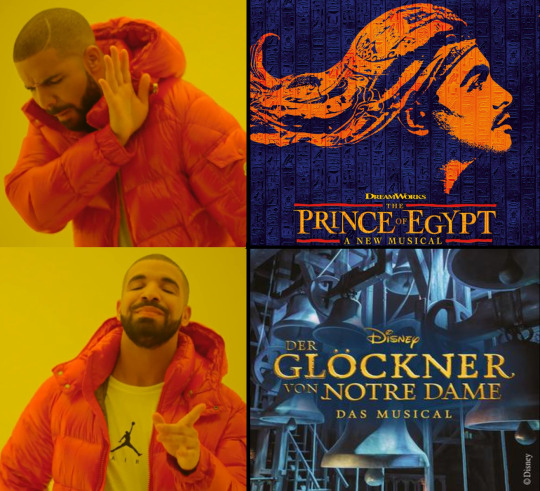
Recently learned that the Dreamworks' The Prince of Egypt stage musical was a thing, and... yeah, the Disney's The Huncback of Notre Dame stage musical is still by far superior in terms of non-Broadway, divergeant musical retellings of an animated masterpiece.
And it's not like The Prince of Egypt is a terrible show the whole way through. It recieved a lot of middling reviews from people who were just whelmed by it. Some of the ideas behind what they added to the story are actually interesting and easily workable. But at the very end, they do something that is absolutely unforgivable to me in how it straight up spits in the face of the source material it was adapting. And it's ironic because I'd said with Hunchback that what the movie gave us of Esmeralda surviving, a big action climax against Frollo, and the big feelgood ending, feels like a Focus Group Ending wherea the stage show felt more like how the story naturally would play out, whereas here it's the reverse - the stage show plays out like a Focus Group Ending that the original movie wisely and boldly avoided!
Where it starts is in alterations made to Rameses' character and in how his and Moses' brotherly relationship falls apart. In this telling, Rameses is more easily won over to hearing Moses' initial argument and promises him that he will let all the Hebrew slaves go, fully intent on doing so. But when his wife Nefertiri and High Priest Hotep make him secondguess himself, he goes back on his word and doubles the slaves' work load instead. This itself is not a harmful change - Queen Nefertiri and the sway she could hold over her husband's decided courses of actions was a thing in The Ten Commandments, so it's neat to see it added back into this story, and High Priest Hotep is more like this version's equivalent to the Dathan character from The Ten Commandments than he is a Hotep-Hui composite character. The story plays out like you'd expect it to from there, with Rameses stubbornly doubling down and becoming a spiteful antagonist to Moses and the Hebrews who refuses to let them leave Egypt, with only the death of his and Nefertiri's child making him finally relent.
Then comes the finale. Rameses and Hotep raise an army to pursue the fleeing Hebrews to kill or re-enslave. Moses parts the Red Sea so that the Hebrews can pass through, but this time as the Egyptians pursue, Moses decides he will turn himself over and ransom himself for his people's safety. So he stands before Rameses, with Hotep urging the Pharaoh to kill him. Rameses has a long pause...and then refuses to kill his brother, rationalizing that there has been too much death already, and as such, "he will be the wink link that breaks this chain of destruction and suffering." This, people, is the epitome of "He Would Not Fucking Say That". The tragedy of Rameses in the movie was that his desire to be a strong leader for Egypt and to uphold the legacy of his father and dynasty without tarnishing it was all-consuming, and so was the stubborn pride, wrath, hatred, and dehumanization of others, even his own foster brother, that came with it. No matter how many plagues he and his people were made to suffer, he would refuse to relent and become that weak link; Seti's strict and abusive upbringing had ingraved this too deeply into him. Here, it seems much the same until right at the Red Sea, right at the cusp of triumph where he could kill his former brother who, need I remind you, is responsible for the death of Rameses' child, Rameses just...decides to finally stop trying to live up to the expectations set by his father and change his tyranical ways. His heart just magically softens on the whole matter. And it gets worse: he and Moses share a loving embrace, renewing their brotherhood. Again diminishing the tragedy of the film's story, the weight of what Moses had to sacrifice in order to do God's work and liberate his people from bondage and oppression. In the movie, Moses' faith and devotion to the will of the Lord, and to his enslaved people that he now could see, love, respect and dignify as people, was so strong that he had to see God's plan through to the end, had to work all of the Lord's miracles in order to free his people, even at the cost of having to be Rameses' enemy, and as a result, his loving, brotherly relationship with Rameses completely shattering beyond repair. Because doing what's righteous against an unjust reality is usually not easy and never without cost. Moses' place in Egypt and his relationship with the man he once called brother was the price he had to pay in order to win freedom for the Hebrews. Once it was gone, he could never get it back. Yet this stage play has him win the Hebrews freedom AND keep the love of his brother even if they have to go their separate paths in life, so I suppose you could say Moses ends up with "All He Ever Wanted!"
But here's the kicker - when Rameses refuses to kill Moses and the rest of the Hebrews, Hotep takes command of the army in his place, so it's he who gets swept away in the Red Sea with the rest of the Egyptian soldiers, and unlike Rameses in the movie, God does NOT spare Hotep! This is literally that "the story now acts like this cronie of the main villain is and always was the main villain who gets his comeuppance while the hero and villain suddenly become buddy-buddy with each other" stupidity from Goodtimes' Hercules! As much power as Hotep may hold as High Priest, it makes no sense that he take authority over the fucking Pharaoh, the actual antagonist of the Biblical story of Exodus. This is the culmination of what Alex Woods' review on the show was on about with how this version of the story "makes Pharaoh's power far less absolute." It hurts the narrative rather than helps it, detracting from Rameses' pathos and menace.
Can you imagine a version of Infinity Train's third season where Samantha the Cat talks Simon into using the memory tape extractor rather than him going to her to get it, and then Samantha ends up with the Apex when Simon's leading it at the end, and then at the moment where Grace saves Simon from falling off the train, he has a change of heart and reconciles with Grace only for the Cat to try to kill her and so the Cat gets killed by the Ghom instead of Simon? That'd be absolutely absurd, neutering the power in those character arcs and the haunting tragedy of the whole situation. But that's pretty much what this play does in regards to Moses and Rameses' story! It's like the script was written by someone who'd not been able to take the harshness of how things actually ended in the movie, so this is their Fix Fic where Rameses sees the light, he and Moses renew their brotherly bond, and they all live happily ever after. And it just does not work. Rameses is an animated villain I don't think I have ever seen anyone give the Draco In Leather Pants treatment to, since the film makes it abundantly clear the two truths that A: he is a complex, layered, tragic figure whose struggle to be a mighty king is pitiful because he is, in the end, all too human and fallible, and B: he's a fucking slavedriver who literally owns human beings as slaves and towards the end of the story intends to commit mass genocide of them - not something you can simply walk back from. So when he ends up losing everything that mattered to him, he's brought it on himself. This is widely understood. There was no need to change it.
If this show is ever revived, someone needs to rewrite the ending. 'Cause sometimes, the villain just needs to remain a villain, dammit!
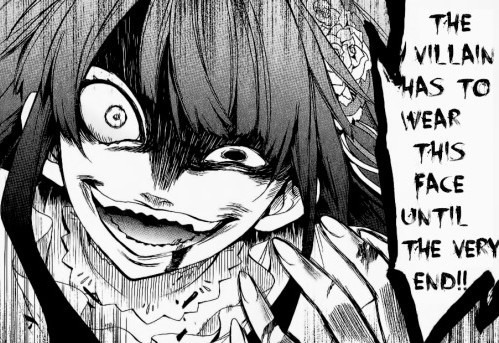
#Dreamworks#The Prince of Egypt#musical#opinion#criticism#Moses#Ramses#King Ramses II#Queen Nefertiri#High Priest Hotep#stupidity#bad writing#character derailment#adaptation decay#completely missing the point
9 notes
·
View notes
Text
Moses and the Burning Bush Scene Movie VS Scripture Comparative Analysis (Part 2/2)
(Part 1)
Back to God and Moses’ conversation. POE (Prince of Egypt) Moses’ response to being asked to go to Egypt to liberate God’s people is a very simplified version of Exodus 3:11 and 4:10.
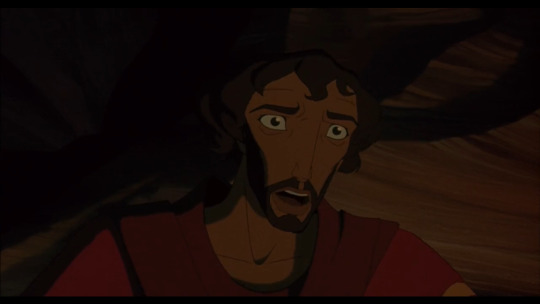
But Moses said to God, “Who am I that I should go to Pharaoh, and that I should bring the children of Israel out of Egypt?” (Exodus 3:11 NKJV)
Then Moses said to the Lord, “O my Lord, I am not eloquent, neither before nor since You have spoken to Your servant; but I am slow of speech and slow of tongue.” (Exodus 4:10 NKJV)
However, the matter of speaking to God’s people is not because of what seems to be a speech impairment but of right. How could someone who was once a son of a tyrannical pharaoh convince those oppressed people to follow him out of Egypt? Very ironic. He feels he does not deserve to even be around them. He sees himself as a traitor to his own people. We see this clearly in his story arc.
POE Moses goes so far as to say “You’ve chosen the wrong messenger!” Yikes, but don’t worry, the Bible Moses kind of says it too: But he said, “O my Lord, please send by the hand of whomever else You may send.” (Exodus 4:13 NKJV) And this comment was after God said “Who made man’s mouth? Who made the deaf, the mute, the seeing, or the blind?” comment.

Understandably to help balance between the movie and the Scriptures, God was angry towards Moses here instead of later. In the Bible, God was angry with Moses after he tells Him to choose someone else. God suggests his brother Aaron to help him and meet him all the way outside of Egypt.
So the anger of the Lord was kindled against Moses, and He said: “Is not Aaron the Levite your brother? I know that he can speak well. And look, he is also coming out to meet you. When he sees you, he will be glad in his heart. (Exodus 4:14 NKJV)
For Bible readers, the conversation ends there. However, as I said, the movie mixes around some things. There were still some things left that the Bible did say.
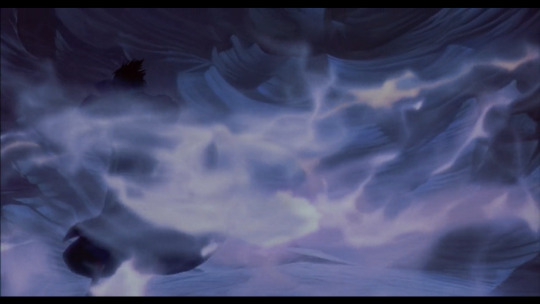
Despite the Lord's anger, He still was gentle with Moses and even showed him more of His glory and presence. So much He made him almost float! Some Christians today would confirm that it is just like this. I truly agree. The gentle peace, tranquility, awe, serenity, glory.

God tells Moses that He will be with him when he goes to Egypt and that the pharaoh will not listen to him. Thus, God will smite Egypt with His wonders. This is told in Exodus 3:12, 19-20.
So He said, “I will certainly be with you. And this shall be a sign to you that I have sent you: When you have brought the people out of Egypt, you shall serve God on this mountain.” (Exodus 3:12 NKJV)
But I am sure that the king of Egypt will not let you go, no, not even by a mighty hand. So I will stretch out My hand and strike Egypt with all My wonders which I will do in its midst, and after that, he will let you go. (Exodus 19-20 NKJV)
Ultimately, God’s presence whether seen or unseen is still with us. Everywhere. That is what POE Moses’ needed, someone by his side to help him do this great task. This was the whole point of God’s character. He is present with us as a compassionate, kind, patient, loving Creator.
Now, speaking of God being with us. Immanuel. The angel of the LORD in the bush. As the angel of the LORD, who was a messenger BUT spoke as a representative of God. Remember when I mentioned that He is who He is? Who could possibly be a messenger who is equal to God? Yep, the angel of the LORD is Jesus Christ.
As it says in the Bible, the angel of the LORD was the one who was present in the burning bush. The pre-existent Christ obviously couldn’t completely reveal His form just yet so He used a burning bush. Why? Not much of an idea. Now, why won’t God the Father Himself come down as the burning bush? It’s because He is so pure, just, righteous, and glorious that He cannot be in any presence of evil and our human sense would not be able to handle such a pure Being. Moses is human. Any human who would see God the Father in all His glory physically die.
But He said, “You cannot see My face, for no man can see Me and live!” (Exodus 33:20)
Some have thought they saw God face-to-face, like Jacob/Israel when he wrestled with Him in Peniel (Genesis 32:22-32), or Samson’s parents seeing the angel of the LORD. For Jacob/Israel, it was purely a physical manifestation of God not His fully glorious presence. Samson’s parents had the same experience as Moses. The angel of the LORD is not fully God the Father as He would be in heaven. It may be confusing, but either way. This presence of the LORD was still His presence but in another form.
The angel of the Lord and Jesus Christ the Son are the same but in different forms. The angel form of the Christ is more spiritual not physical. Jesus of Nazareth is God but clothed with humanity. (John 14:9)
Thus.

Looking in Moses’ eyes is the best clue that this is the angel of the Lord, AKA the spiritual pre-existent Jesus Christ. Consistent with Scripture and how God is shown with the authority He has? Yep. That convinced me.
So, now that we know who this is, essentially.
Immanuel, עִמָּנוּאֵל, God is with us. His presence of love, light, purity, gentleness, mercy, and grace. This is the core of who He is. Yes, He gets angry. Yes, He gets jealous. However, He also holds gracious love for us so much we can not even fathom how deep, wide, long, or high it is. So, that is why I truly love how the movie decides to show God’s love for Moses. He promises to teach him. He promises He will be with him many times. THIS. Wow.
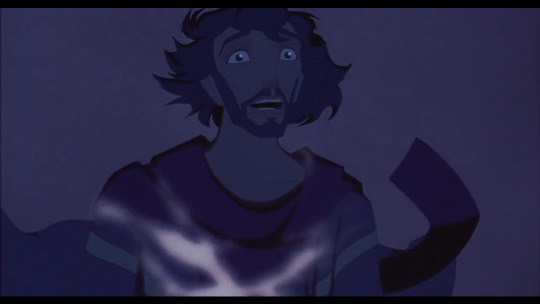
God knew more than anyone that Moses was scared. So He told him what he needed to hear in this tough time. He showed him His glory and power. This later helps him to gain the confidence to show the pharaoh the power God gives him in his staff.

To summarize, the movie gives a wonderful presentation of God’s character. Is it perfect? Of course not. Do we expect it to? Of course not! As a Christian, this movie did a fantastic job. The love of the Lord is what’s most important. He is to be feared, but also to be worshipped. He has many mysteries but through Jesus Christ even before His earthly birth through Mary, He was watching out for His own people. He reveals Himself in many different ways but He is still the same Person.
I have heard so many people come to Christ thanks to this movie. I truly am grateful! Glory be to the Lord and may the Lord guide you in your endeavors with abundance and blessings!
In Jesus’ name, Amen!
#moses#bible#christianity#judiasm#abraham#movie analysis#prince of egypt#poe#moses prince of egypt#God#Jesus#Holy Trinity#Burning bush#Exodus#character analysis#analysis#biblical analysis
7 notes
·
View notes
Text
i have opinions about The Prince of Egypt musical adaption and you’re going to listen to them: An Essay
So, quick disclaimer: The Prince of Egypt is one of my favourite movies of all time. The casting, the music, the animation, I think it’s one of the top-tier movies that have ever been made. I went into seeing the London West End production of PoE with a full expectation that nothing I saw on stage would ever live up to how much I love the movie. I was fully aware there are plenty of limitations to what can be shown live on a stage with human actors and props.
That being said, I was enormously disappointed with how the whole thing was handled.
The Good
Now before I launch into a whole tirade of what I didn’t like about the production, it does behoove me to say what I think they did do well.
The casting of the role of Moses was done fantastically, as was Miriam, Tzipporah, and Yocheved. The swings and the ensemble were really engaged and well placed, going through lots of quick changes to go from Hebrews to Egyptians to Midianites and back.
The two Egyptian queens, wifes of Seti and Ramses, are actually given names, lines, and character beyond being simply tacked onto their respective kings. We get to see how they feel about the events happening around them, and there’s even a scene where Ramses meets his wife and courts her, whereas in the movie, she stands in the background and says nothing. This is one of the areas I was hoping the musical, which would naturally have a longer run-time, would expand on, and I was pleased to see the opportunity was taken.
Light projections on enormous curtains were used to very good effect, taking us instantly inside the walls of the palace and then out to the desert.
Over all, the work was really put in to be engaging and emotional, and the orchestra really worked to deliver the right musical beats.
One of two stand out scenes as being done very well was the opening “Deliver Us”, which included a bone-chilling moment of Egyptians separating a mother and her baby, with her screams as she’s dragged off-stage, and the blood on the guard’s sword. It really brings home the fear as Yocheved tries to lead Aaron and Miriam to the river with her, not to mention Yocheved’s actress nailed the lullaby.
The second was at the other end of the show, “When You Believe” was beautifully performed by the whole cast, though it was somewhat stunted by what came before...
The Bad
Oh boy.
So the main problem with this show is not the music, not the staging, not even that sometimes the ensemble was a little off-beat (the lai-lai-lai section in Though Heaven’s Eyes comes to mind). Any mistakes there can all be forgiven, since sometimes things just happen in live performance, someone’s a bit off or something’s just not possible to do on the budget allotted.
The problem is in the script.
The Prince of Egypt movie is a story that stands not only on the shoulders of its fantastic music and visuals, but also on its emotive retelling and portrayal of the characters within - mainly Moses and Ramses. And while the stage musical does spend a lot of time with the two mains, it neglects two other, incredibly important characters.
Pharaoh Seti, and God.
In the movie, Seti strikes an intimidating figure. He is old, hardened, and wise in the ways of ruling his kingdom - and is voiced by Patrick Stewart, who brings his A-game to the role. Both Moses and Ramses admire him and look up to him immensely as young men, and the relationship he has with both of them deeply informs their characters as the story progresses. It’s from Seti that Moses learns that taking responsibility for your actions is the respectable thing to do (and later, the true horror of having your idol turn out to be not what you think), and it’s from Seti that Ramses takes a huge inferiority complex.
There are two lines that Seti gets in the movie, one spoken to Moses, and one to Ramses. These two lines define Moses and Ramses’ actions later on in the story:
To Ramses - “One weak link can break the chain of a mighty dynasty!” To Moses - “Oh my son... they were only slaves.”
Guess which two lines are absent from the musical?
One Weak Link is turned into an upbeat song, rather than shouted at a terrified and cowed young Ramses. Instead of being openly a traumatic, internalised moment of negative character development for Ramses, it’s treated as a general philosophy that Seti passes down to his son. Instead of a judgement that is hung over Ramses’ head like a sword of Damocles, lingering in his mind through the whole story and coming up in a shouted argument with Moses later, it’s said and then moved on from.
The “they were only slaves” comment, on the other hand, is absent entirely. This changes Moses’ relationship with Seti enormously, as well as his relationship with the Hebrew people. Upon finding the mural depicting the killing of the slave children, Moses is appropriately horrified, and Seti shows up to comfort him and defend his terrible actions. Moses leaves this interaction... and then sings about how this is indeed all he ever wanted! He has no moment of horrific realisation that his father thinks of the slaves as lesser, as lives that can be thrown away. This means that the scene where he kills the guard doesn’t lead into a discussion of morality with Ramses as he runs away, but rather Moses breaking down about his heritage as though it’s a negative, instead of something he’s realised is just as valuable as his life as an Egyptian. Instead of Moses being shown as having a strong moral core that protests against the idea of any life being lesser, he bemoans his Hebrew blood loudly, and makes little mention of the man he killed. His issue that causes him to run away is being adopted, rather than his guilt that he’s a murderer, and nothing Ramses can say will change it.
Later on, we don’t see Ramses express this opinion either (in the movie - M:”Seti’s hands bore the blood of thousands of children!” R:“Hah, slaves!” M:“My people!”) so it seems the core reasoning for the necessity of the extremes God had to go to in order to convince Ramses to let the Hebrews go is completely gone.
Which leads us into God Himself, as a character.
God is a tricky topic in general. He is hard to talk about as a concept and as a character, and even harder to depict in a way that won’t offend someone. The Prince of Egypt movie always struck me as a very good depiction of the Old Testament God - vengeful and strong-willed, commanding and yet nurturing, capable of great mercy and great cruelty in one fell swoop. God is incredibly present in the story, a character in and of Himself, speaking with Moses rather than simply commanding him. The conversation at the Burning Bush is bone-chillingly beautiful. Moses is allowed to question, he’s allowed to enquire, he’s allowed to express how he feels about God’s choice, and God is given the chance to respond (and reprimand, and comfort).
In the musical, the Burning Bush scene lasts all of two minutes, during which God (the ensemble cast, acting as one moving flame, speaking in unison) monologues to Moses, and Moses is not given room to question, talk to, or build a relationship with God. Later on, once some of the plagues have gotten underway, Moses rails against God, flinches in his resolve, and tries to back out... and God says nothing. It’s Miriam and the spirit of Yocheved that convince Moses to keep going. As a character, God is nearly absent. Even when it comes to calling upon the Plagues, or parting the Red Sea, God’s voice is absent. Moses does not pray. He does not even use the staff that God encouraged him to pick up as a symbol of his becoming a shepherd of the Hebrews out of Egypt.
It’s these little changes, these little absences of such vital lines and presences, that ends up changing the whole vibe of the show. Seti is more like a dad than an emotionally distant authority figure, and God is more like an emotionally distant authority figure than a character at all. Ultimately, the whole feeling that one is left with at the end…
The Ugly
… is that the script doesn’t like God, or religion in general.
A bold statement to make, considering the source material is one of the central biblical stories in EVERY Abrahamic religion. Moses as a figure is considered so important and close to god, that The Prince of Egypt, even with its sensitive portrayal, cannot be aired in a number of Islamic states, because it’s considered disrespectful to depict any of the prophets, especially an important one like Moses. Moses is arguably the MOST important prophet in the Jewish canon.
However, I haven’t highlighted one of the most noticeable script changes - the elevation of Hotep, the high priest, to main antagonist.
In the original movie, Hotep is a secondary villain, a crony to the Pharaohs, bumbling and snide and two-faced. He and his fellow priest Hoy are there primarily to juxtapose how charlatans can control power through flattery and slight of hand, reassuring Ramses that Moses’ miracles are merely magic the same as what they can do. They even get a whole villain song, “Playing With The Big Boys” which is a lovely deconstruction of lyrics vs visuals, where while the priests boast that their gods and magic are much more powerful, in the background the staff, transformed into a snake by god, devours and defeats the priests’ snake handily. The takeaway from the song is that God’s power is true, and doesn’t need theatrics.
It’s a good little nugget of wordless world building. And it is completely absent from the stage musical, with only a vague reference to the chant of all the gods names.
Hoy is gone, and Hotep is the only priest. He actively speaks out against the Pharaoh, boasts about having all the power, and is played as bombastic and proud. He’s a wildly different character, even threatening Ramses at one point. In the end, it’s shown that Ramses won’t let the Hebrews go not because he has inherited his father Seti’s cruel attitude towards the lives he considers beneath him, but because he is being actively bullied by the priest, and will lose his power and credibility if he doesn’t do as he’s told. Ramses is even given a whole song about how little power he really has. The script desperately wants us to feel sorry for Ramses’ position and hate the unrepentantly, cartoonishly evil priest.
That’s another matter as well - a LOT of time is dedicated to making the Egyptians more human and sympathetic, portraying them as largely ignorant of the suffering beneath them, rather than actively participating in slavery. Characters speak out of turn without regard for formality and class, even to the royal family. They are casual, chummy even. And this would be fine - in fact, it’s good to have that sort of third dimension to characters, even ones who are doing reprehensible things, to show the total normalcy and banality of evil - if it were not for the fact they still include a completely open-and-shut case of evil right next to them.
Hotep has no redeeming features. And on the other side, God is barely present, certainly not in a relatable context. Moses has several lines about how cruel and unnecessary God’s plagues are - and you know what, in this version, they are unnecessary! Ramses is not the stone-hearted ruler that his movie counterpart is, he has no baggage over being a potential failure, because it was never really given to him in the same way! By taking away Ramses’ threatening nature, numbers like the Plagues lose half their appeal, as the back-and-forth ‘you who I called brother’ lines between Moses and Ramses are completely absent. Moses is faithless, and is less torn between the horror of what he’s doing and the necessity of it for the freedom of his people, and more left scrabbling for meaning that he doesn’t find. And the only thing hanging over Ramses is Hotep nit-picking everything he does and threatening him, which is considerably less compelling than the script seems to think it is.
This is best exemplified at the end, when all the issues come to a head. The angel of Death comes and takes the Egyptian first borns (which was actually a well done scene), and the Hebrews leave to a rousing rendition of When You Believe. But then we cut to Ramses and Hotep, with Hotep openly threatening to revolt against the Pharaoh - whom was believed, especially by the priesthood, to be a living god! Hotep is so devoid of redeeming features he cannot even be trusted to stand by his beliefs! - unless Ramses agrees to chase after the Hebrews. Reluctantly, Ramses is badgered into the attempt.
Back with the Hebrews, Moses parts the Red Sea… not with his faith, not by praying to God for another miracle, not even by using his staff as in the most famous scene of the movie… but by holding out his hand and demanding the ‘magic’ work. Setting aside the disrespect of Abrahamic religions to call one of the most famous miracles “magic” (and my oh my, if there was a fundamentalist of any religion in the audience they might have gasped to hear it), it again belittles the work of God, and puts all the onus on Moses, not as a conduit for God’s work, but as the worker himself. Then, the Egyptians arrive in pursuit, lead by Hotep, not Ramses. Moses sends the Hebrews through first, lead by Miriam, and stays behind with Tzipporah… to offer his life in penance to Ramses! The script has completely stripped both Ramses and Moses of their convictions towards their causes, and Moses cannot even stand by his decision to lead his people.
Then, in a moment of jarring melodrama, Moses has a sudden vision that Ramses, his brother, will one day be called Ramses the Great (an actual historical Pharaoh who reigned 1279-1213 BCE). There is no historical evidence that this was the Ramses that ruled over the Hebrews (there are 11 Pharaohs called Ramses through the history of Ancient Egypt), and maybe if the scene was acted a little better, it wouldn’t have been so sudden or jarring. Even more jarring, is that then Hotep arrives with the rest of the army, and Ramses refuses to lead the charge into the parted sea. Hotep does so himself, and is the one to have the final dramatic moment, being crushed under the water.
The Takeaway
After watching the show, I’m afraid I could never recommend it as either a play, an adaption, or even as a faithful retelling of a bible story. Its character drama isn’t compelling enough to be good as a standalone play, with it two main characters declawed and their core motivations reduced to a squabble between brothers rather than a grand interplay between two cultures and ideas and trauma handed down from their father. As an adaption of the movie it’s upsettingly bad, with grand numbers like the Plagues rendered piecemeal and fan favourites like Playing With The Big Boys missing entirely. As a retelling of the bible story, it’s insulting, completely cutting God out of the equation, taking no opportunity to reintroduce Aaron as an important character (which he was, in the bible, as Moses was a notoriously bad public speaker, with a stutter, and Aaron often interpreted for him) and more importantly, completely erasing God’s influence from the narrative.
I don’t know who this show was… for, in that case. If it wasn’t for drama lovers, movie fans, or people of the faith, then who the hell was it for? Why change such a critically acclaimed and well-beloved story? Why take away all these defining moments? If you wanted to tell a story about how religion is the true evil, how God can command people to do terrible things, and how those who uphold organised religion like Hotep are unrepentant, one-dimensional monsters… why would you tell that through the Prince of Egypt?
Underwhelming at best, infuriating at worst… just watch the movie. Or read Exodus. At least the Bible’s free.
68 notes
·
View notes
Text
Why I Love Prince of Egypt
So I got asked earlier “what would happen if your favorite horror characters in your favorite non-horror movie” The movie that I used was Prince of Egypt. If you don’t know of this masterpiece somehow, it is the story of Moses and the Exodus of Egypt. It does indeed change... a few details but it very much tries its best to match the source material. Many people of other religions adore this movie. The animation was way ahead of its time, every song in it was catchy, EVERY SONG, the characters were relateable and written so well, and they didn’t make the characters in EGYPT white! For those of you who DO KNOW ABOUT THIS MOVIE... you’re probably wondering what else there is to talk about. “You talked about most of it... to quote Derek from Swan princess, “What Else is There?”” ---- Alright. I’ll tell you. I grew up with a pretty religious christian family, and besides the story of Jesus and/or Adam and Eve... Moses was talked about A LOT during the few years we went to church. He is one of my favorite bible characters of all time. Why? Because Prince of Egypt made me understand him. It made him more than a... guy with a beard who did God’s work for me. Was prince of Egypt ENTIRELY ACCURATE? No. Moses knew who he was since he was little. But.... Prince of Egypt made him make sense to me. The man grew up as a prince, and then as he grows up, he realizes his home is being built on the backs of HIS PEOPLE. And so when he kills one of the soldiers, he runs in FEAR. He fears HIMSELF and what he can do to others, so he RUNS, something that... anyone would do. So he’s living life, happy family and shit, and then he sees a FUCKING BURNING BUSH and he finds out that GOD wants HIM to free his people. God wants him, a known murderer, to go back to what he called home, and fight. Moses is all like “Dude, what the fuck, I’m was the son of the man who slaughtered their BABIES, and you want me to go back there and have them LISTEN?!” But let’s skip ahead. To the plagues. It shows Moses... as anyone would react. He’s watching innocent people, children and families losing everything, and he HATES HIMSELF for it. He wants it to stop. He doesn’t want to fight the people he grew up with. But he’s forced to for his people. And then he warns Rameses about what’s coming. He can’t say, but he knows. He’s begging. Pleading. He can’t bear this. The other plagues were bad but... “Something else is coming. Something WORSE than anything before!” And then Rameses threatens the people... and Moses knows it’s as good as done. He just.... stares at the little boy, knowing what would happen to him, and he can’t do ANYTHING. “Rameses, you bring this upon yourself” And then it happens. Every first born is killed. Moses has become the man with thousands of children on his hands, including family. And his reminder is the blood-curdling screams and sobs of people who lost their children and families. Any bond he ever had with Pharaoh is broken. His people are free... but his mind never will be. So what does he do when he walks out of the palace? He collapses... and sobs. Like anyone else would. He’s aching. He’s in pain. He did this. He’s the reason they’re screaming. And if you notice, for the rest of the movie after that... He’s tired. He’s broken down. He’s worn. The guilt almost takes the life out of him. That’s why I love Prince of Egypt. They didn’t make Moses some “wise-old dude” they made him a PERSON.
36 notes
·
View notes
Text
some prince of egypt things:
the cast is incredible. especially ralph fiennes as ramses, jeff goldblum as aaron, and of course, steve martin and martin short as hotep and huy
not only did dreamworks acknowledge at the beginning of the movie that they took some artistic liberties, but the things they changed made sense. they added more to the story - especially with making ramses moses’s brother instead of his father.
music!!!! every single song is such a goddamn bop
ofra haza (an israeli singer) played yocheved. the hebrew she sings in deliver us translates to “my good and tender son, do not be frightened and do not be scared”
when yocheved sings her lullaby to moses, she sheds two tears - one from the inner corner of each eye - and her hair blows in front of her mouth. later, when miriam sings the lullaby (also to moses) the exact same thing happens. kills me every time
music motifs!!! off the top of my head - yocheved’s lullaby plays during some significant moments when moses is still in egypt (no i don’t remember which specific moments just take my word for it), all i ever wanted plays while moses is shepherding right before the burning bush scene, deliver us plays when moses tells tzipporah about his people wanting their freedom, and the plague song is basically an all i ever wanted reprise
ok so cool thing about colors - moses is always red, ramses is blue. the accents on mose’s egypt-wear are red, so are the plumes on his horses, and the huge-ass robe thing he got from jethro. when he’s younger, ramses’s clothes are accented with blue, his horses’s plumes are blue, and so is his armor in the red sea scene. in the plague song, when half of each of their faces join to make one face, moses’s face is lit up red, ramses’s is blue. at night the palace is lit blue. the one blue thing moses owns is ramses’s ring - which he ends up giving back.
what they did with tzipporah! in the actual torah they don’t meet until moses saves her and her sisters (i’m pretty sure the whole “moses falling in” thing doesn’t happen in the torah either...stellar scene. truly) the way she’s handled in the movie just adds a lot of history and background to her and moses rather than it being out of the blue. obviously it doesn’t get off to a...great start...but i just think it’s cool that moses helping her escape leads to him finding out who he really is, which leads to him running away, which leads to them falling in love, etc. good job prince of egypt writers!!
not that it matters but making moses stupidly hot and not like 80 (which he canonically is) was. galaxy brain. thank you for making me horny for the leader of my people dreamworks
i don’t know jackshit about animation but that red sea water looked fucking real. WHAT–
also! the fact that the bottom of the red sea isn’t just straight up flat sand cause that is literally just. not how a sea floor works? it’s like it’s own mini mountain range! and it takes them a while to cross!! FANTASTIC
when moses turns the nile to blood and there’s a little circle of water around him!! true to the source material!! (in the torah it says that it was still water for the israelites)
THE FUCKING DREAM SEQUENCE OH MY G O D
it’s so cleverly done, especially when the moses!fam is running from the egyptians and they run on the ceiling or on the pillar in front of all the drawings. the MUSIC. the COLORS. and according to my art history mother, all those trees were literally everywhere in Egyptian art. THEY👏🏼DID👏🏼THEIR👏🏼RESEARCH👏🏼
how they tried to show just. how many people there were. like there were around 600,000 israelites!! and that’s just the men over 20!! and you could tell that it was a TON of people (especially when you see them leaving and on mount sinai)
BURNING BUSH SCENE
fun fact! the voices of god are a man’s voice and a woman’s voice layered on top of each other!!
fun fact part two! the male god voice is the same guy who voices moses! oh the metaphors
the “who made the blind, the deaf, etc.” line is a direct quote from exodus
ANGEL OF DEATH!!!!!
obviously that’s like. a very difficult scene to do (maybe even more difficult than the bush scene??) without pissing off a lot of people and they did. a good fucking job.
moses’s hair is just. really important. you know what? zuko vibes. moses is zuko, zuko is moses, they are the same.
the kids singing in hebrew as they leave egypt are singing the song of the sea! in the torah, it’s sung as they cross the red sea. also it’s sung by a children’s choir how CUTE
it’s little but in the actual torah moses doesn’t spend much time with kids because he’s busy leading a bunch of whiny bitches (i’m jewish i’m allowed to make the joke lol) through the desert for forty years, so just that little moment where those two kids jump on his staff..he really was a leader of the people, yknow?
how when old!pharoah (no i don’t remember his name) stands in the throne room in profile and it perfectly lines up with his bigass statue of himself right outside. and then ramses does the same exact thing except his statue is like. much bigger. i think he’s overcompensating for something lol
the movie ending on the ten commandments is obviously v good but i’m just laughing because we’re just gonna. gloss over the tablet smashing lol. it’s ok i’ll let it slide
AND IT ENDS ON YOCHEVED SINGING DELIVER US AGAIN!!!! Y E S
and at the very end, three quotes about moses - one from the torah, one from the new testament, one from the quran!!
there are lots more lol i could go on about this movie for a very long time
#this has been in my drafts since pesach#so like. 2 months at least lol#pls enjoy my prince of egypt mania#the prince of egypt#long post
106 notes
·
View notes
Text
The Prince of Egypt MBTI Profiles
Finally done! From a 2018 draft; notes and MBTI learning from 2016-2020.
Miriam: ENFJ (Fe-Ni-Se-Ti)
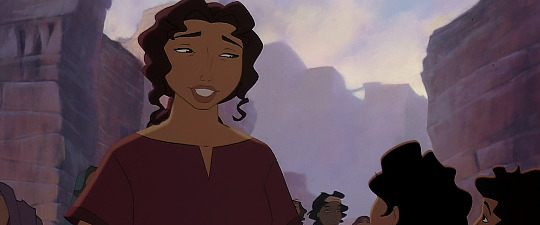
Judging functional axis: Extraverted Feeling/Introverted Thinking Fe-Ti
Miriam is a warm-hearted advocate; insightful, inspiring, and active. She wants to effect (and see others effect) positive change in the world. Forthcoming with her opinions and emotions, at times she can be a bit forceful with them, sometimes rolling over others, or not immediately considering their perspectives or feelings, in an effort to get her point across or get things done (Fe-Ti dynamic; can come across as an “I know best” kind of attitude, which to be fair Miriam pretty much does) — one example of this is the well scene with Moses.
As a function, Fe is focused on the external world and making people-factored decisions and judgments: Fe dominants especially are concerned with what others should and shouldn’t be doing and with promoting cooperation (the higher any function is in someone’s stack, the more natural influence and use — “dominance“ — it has). At various points in the film, Miriam becomes disapproving and stern with Moses and Aaron, the latter when he’s confronting Moses with his critical outburst (“Aaron. You shame yourself.”). This is perhaps a demonstration of Fe-Ti taking-a-stand and/or inferior Ti: Miriam swiftly taking Aaron to task for his doubting, disharmonizing words against Moses, overlooking their value/validity and his viewpoint. With Moses, as shown in both the well and mud pit scenes, she knows what his role is, encouraging and reminding him to act within it, connecting his responsibility to their people, and affirming his tie to them.
Miriam tends to speak in ways that appeal to human connections and welfare, as evinced by the sensitive speech she gives to Moses, in which she expresses the pain of her experience as a slave, and recounts Gd’s presence in his/their lives. She tends to put others’ needs before her own, at the same time knowing how to defend herself and to trust her judgment, is loving and reassuring, and can rally people together through low and lofty times.
Perceiving functional axis: Introverted Intuition/Extraverted Sensing Ni-Se
When Moses returns to Egypt, Miriam seems to just know why he’s come back (knew he would come back, even), perhaps also from taking in his robes and other aspects of his physical appearance. It’s comparable to when Moses first shows up in Goshen years before: She sees the broader implications of his homecoming, why he must be here at last. Her sight is forward-reaching and personally meaningful; a specific goal that she's determined and focused on, grounded by both her faith and observations of the world around her. She knows how things should/could be, how she wants them to be, and takes actions in the present to make those things a reality.
Miriam believes in others’ — particularly Moses’ — potential (“And you are, Moses. You are the deliverer.”), which is a further reflection of her Ni. Though able to reconcile and adapt to changes when they occur (Ni-Se being adjacent functions in an ENFJ), it is nonetheless indicative of an Ni-Se dynamic that Miriam becomes stressed during the well scene when current reality and facts — that Moses wasn’t told who he is and hasn’t returned to help them obtain freedom — don’t match up with her beliefs/ideals or the underlying truth. She understandably protests this unexpected change, and can’t/won’t let go of what she has put her hopes in, and been fortified by, for so long. She doesn’t actually let go, but I think it does make her want to fight for these hopes more… and, in this scene and others, push Moses to achieve his promise.
Aaron: ISFJ (Si-Fe-Ti-Ne)
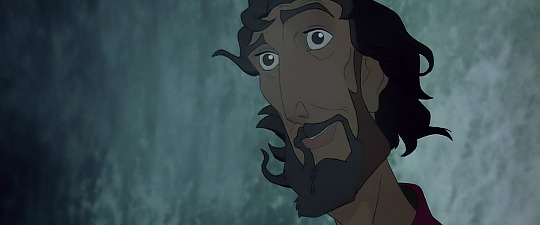
Perceiving functional axis: Introverted Sensing/Extraverted Intuition Si-Ne
Aaron is practical, reliable, protective of family and others; trusting of personal experience and wary of what is new or uncertain. Because these two naturally opposing functions, Si and Ne, are also located on opposite ends of an ISFJ’s stack, resolving the tension between them is more difficult, and this is true for Aaron, whose own journey involves overcoming his fear and becoming more open to trust and faith, stepping out of his comfort zone.
Aaron tends to make concrete, habitually self-sacrificing, gestures and actions. He cares about others and their physical safety; it is Miriam he most clearly looks after, but this includes Tzipporah, Moses, and the Hebrew community (a camel, too). While Miriam is often the sibling on the front lines, and, after resisting the call at first, Moses eventually comes to accept his position as a leader, Aaron plays a more supportive role, and is the one whom the other two can count on in times of need.
When Moses returns to Egypt, Aaron immediately calls attention to how Moses behaved in the past, believing and perhaps also fearing that his younger brother hasn’t changed. Si-doms reference meaningful past details to understand the present, noticing consistencies and inconsistencies. It’s telling that Aaron hasn’t let go of events from years ago, and that he draws a comparison between what happened and what is happening: the way Moses treated Miriam, and that he didn’t care about slaves.
His inferior Ne manifests in his fearful, cautious attitude towards things that seem to him unfamiliar or unrealistic (such as Miriam’s beliefs about Moses), and in his inclination to expect all possible negative outcomes, which are based in his (objectively negative) known, prior experiences. One example is the well scene, but also the Nile to blood scene where Aaron despairs, rather realistically, that Pharaoh still has the power over their lives. (I’ve thought about whether he’s in an Ne-grip, or even a Ti-loop, for most of the film.) However, once he starts to experience with his own senses that freedom is attainable, tangible, he starts to trust these changes, challenging his established security and his courage by walking into the parted waters of the Red Sea.
Judging functional axis: Extraverted Feeling/Introverted Thinking Fe-Ti
While more reserved and even-tempered than Miriam, Aaron in general does not withhold how he feels, expressing his opinions, fears, anger, affection, joy. He is mindful of his and his people’s position within Egyptian-dominated society (certainly dominant Si-related too), to the point of affirming his, Miriam’s, and Moses’ roles when Moses appears in Goshen — an attempt to mitigate their very tense interaction with perhaps a bit too accommodating desire for group harmony. Aaron makes decisions based on values and how people relate to one another. For example, during the same scene his plea to Moses is an emotional one; as in, Aaron is calling to Moses’ mercy, trying to reach with Miriam’s appearance of illness some compassionate part of this threatening prince.
Aaron makes a similar, albeit angrier, appeal to Moses during the mud pit scene, this time rousing, whether he knows it or not, Moses’ sense of guilt and morality, and asking when Moses started caring about slaves. (I’ve always felt like there’s a resemblance between Aaron’s and Miriam’s scolding/“shaming” styles.) While still speaking to concerns that affect people, Aaron is able to form analytical conclusions, checking logic and what “makes sense” (other illustrations: “In fact, Moses, when did you start caring about slaves?”, and, “But, Moses, didn’t you see what happened? …”). He uses his Fe-Ti to assert himself during the mud pit scene, a kind of “sounding off” that shows that he’s reached the point where he won’t be silent any longer (it doesn’t help that he’s had to sit on these emotions for years).
Moses: ISFP (Fi-Se-Ni-Te)
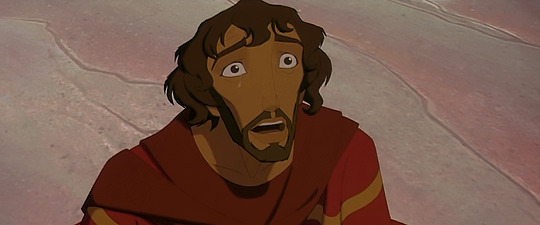
Judging functional axis: Introverted Feeling/Extraverted Thinking Fi-Te
Sensitive and just, impulsive and good-natured, Moses typically acts and reflects upon a deep and personal(ized) sense of values, of “right and wrong.” He defends Rameses by taking responsibility for their mischief; he knows to feel remorse after he’s mistreated Tzipporah at the banquet. When Moses finds out the truth about his origins, he is appalled by Seti’s use of infanticide. With Tuya he asks, “Is this where you found me?”, again calling attention to the wrongness he feels. And of course, he takes a stand against oppression. Like Miriam and Aaron, Moses factors how people relate to one another into his decisions (all three siblings are Feelers, though Miriam and Aaron use Fe, not Fi).
Furthermore, Moses tends to share his strong feelings more privately; his one-to-one interactions with Rameses suggest this. Not only does “All I Ever Wanted” act as a mustering of personal conviction, “this is who/what I am,” it’s also Moses’ inner monologue wherein and whereafter he sits and processes his emotions on his own.
Moses is quick to internalize blame when things go wrong, which of course anyone can do, but in Moses’ case this points to (especially dominant) Fi’s concern with upholding its integrity. Part of his running away from Egypt is spurred on by these blows to his sense of self/self-worth and morality. (He’s troubled by his own ignorance and identity upheaval.) Under the guidance of Jethro and his people, Moses rediscovers and redefines his values, learning to see himself objectively — “Through Heaven’s Eyes” — as well as the dignity of every life. His encounter with Gd and conversations with Tzipporah and Rameses allow him to reckon with the fact that he truly must “learn to join the dance” and cannot remove himself from the world nor neglect doing what he knows is right. It’s in his later confrontations with Rameses that he’s able to step up and express his values and wishes in a firm, organized way.
Perceiving functional axis: Extraverted Sensing/Introverted Intuition Se-Ni
As a teenager, Moses is a reckless seeker of sensory experiences, pursuing enjoyment in the here-and-now and competition alongside Rameses (“Oh, come on. Where’s your sense of fun?”). He follows Tzipporah out of intrigue — as well as a desire to make amends. His humiliating Tzipporah can be seen as not thinking about the impact of his whims. Even so, a healthier auxiliary Se shows in how he’s able to see the facts about himself and admit mistakes, in his adaptability, and, with maturity, in his unimpetuous playfulness. As an adult, Moses remains someone who doesn’t much hesitate when he encounters something new: For example, he isn’t entirely cautious when he catches the flickering light of the burning bush, though one can argue that he’s also drawn there spiritually. Another instance: He’s happy to be hands-on in Midian, minus the dancing at first.
Although Moses’ tertiary Ni surfaces in his ability to grasp the potentials that people and situations hold (“I know [Rameses] will live up to your expectations. He only needs the opportunity.”), Moses’ sense of direction and of greater purpose are shaken after he becomes unsure of what good/worth he can contribute to the world. He “loses” himself in the present, to a free and joyful life in Midian. However, he regains his drive and sight of the larger picture, with the help of all the figures in his life — Jethro and Tzipporah, Gd, Miriam and Aaron, and Rameses — committing to the task given to him.
Last edited: 6/8/20
#the prince of egypt#miriam#aaron#moses#mbti#new stuff#my writing#oh hi i'm not back#just finishing what i started#did my best with these#one of the reasons this took 4 years was bc i kept harping on all the details#(mud pit scene you hurt so good)#editing this has been a good distraction tho#would totes write 5000 more words for each sibling#but i want to move on too#i think mbti is interesting and helpful but it's also not my only guide
62 notes
·
View notes
Text
21st Anniversary of The Prince of Egypt

To think this movie is already 21 years old (fun fact, this movie came out the date before my birthday, in the year after my birth), and it’s such a beautiful masterpiece!
To celebrate, here’s a list of my favourite moments in no particular order:
1) Deliver Us- This song is perhaps my most favourite song in the whole movie. It’s epic, bitter, and the music is so rhythmic as it captures the suffering of the Hebrews and sets the tone for the rest of the film. There’s also the brief glimmer of hope it offers when baby Moses is found by Queen Tuya, who immediately takes him in after being completely charmed by his adorableness, and Miriam’s lovely reprise of Yocheved’s River Lullaby. And of course, we cannot forget Ofra Haza’s amazing vocals as Yocheved, especially with how she sings in Hebrew in her introduction. She had such a divine voice, and she shall be missed forever.
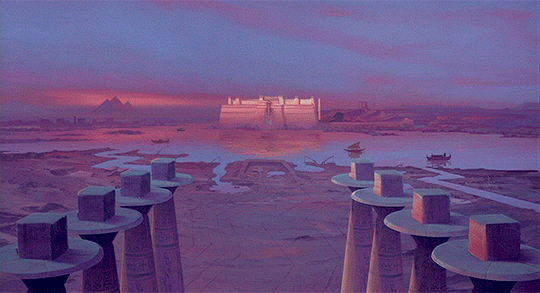

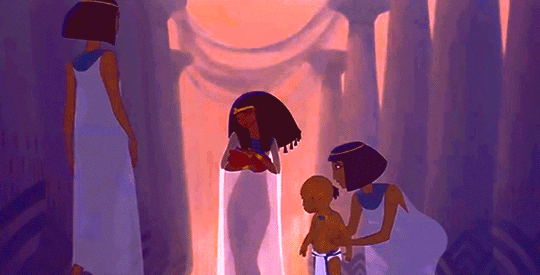
2) The Plagues- Of course, this song will also be one of my favourites as well. The emotion in the music, the way the choir sounds so intimidating as they sing lines like “I send the thunder from the sky, I send the fire raining down”, it truly conveys God’s wrath, all while underscoring the turbulent emotional conflict between Moses and Rameses. Hearing the pain in Moses’ voice as he’s forced to watch the Egyptians suffer, and hearing the bitter anger in Rameses’ voice as he remains stubborn to Moses’ pleading... this song is truly a masterpiece. It also really shows how human Moses is. The Old Testament never really shows Moses feeling any remorse for the suffering that the Egyptians go through, but this movie makes Moses so human, so much more real, and shows how he still cares about Egypt, even as he’s trying to free his people.
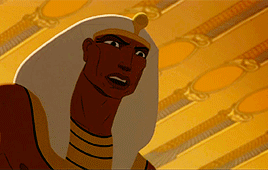
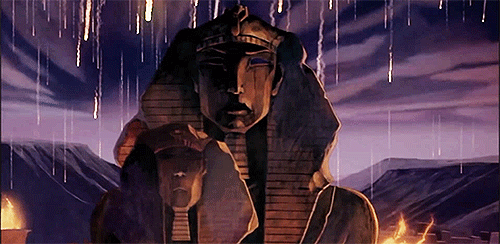

3) The Return to Egypt- I love the music that plays during Moses and Tzipporah’s journey back to Egypt, especially with the additions of Ofra Haza’s beautiful vocals that underscore the suffering of the Hebrew slaves. And that determined, serious expression on Moses’ face as they near the palace just makes him look so badass, especially when he and Tzipporah enter the palace and make their way to the Pharaoh. I especially loved the festive undercurrent of that particular section of the soundtrack, with Moses and Tzipporah walking with determination into the great hall as the people look at them in surprise and suspicion, all while the dancers are dancing before the Pharaoh. It’s quite a phenomenal scene, really heightening the tension to reveal the Pharaoh upon the throne as Rameses, upon which the music ends. It’s such a determined, badass scene that I just had to include it here.
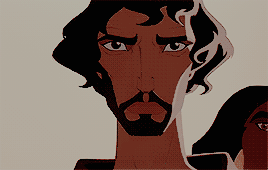
4) Look Through Heaven’s Eyes- After Moses has lost everything he’s ever known, after his entire life has been destroyed, he feels so unworthy of honour and praise. But with Jethro’s patience and kindness, the help of the Midianites, and the support of Tzipporah, Moses rebuilds a brand new life for himself as a shepherd. It’s such an uplifting song with beautiful lyrics that encourages us to look at our lives in a different perspective, that we all have meaning within us, we just have to find it. And really, it’s so wonderful to see how Moses learns and adapts to a new way of living, how he makes new friends, and of course, how blissful and happy he is after marrying Tzipporah. Plus, seeing Moses and Tzipporah falling in love is super sweet. Ultimately, it’s a song that I’ve now taken to heart, and will remember if I’m ever stuck in a rut.

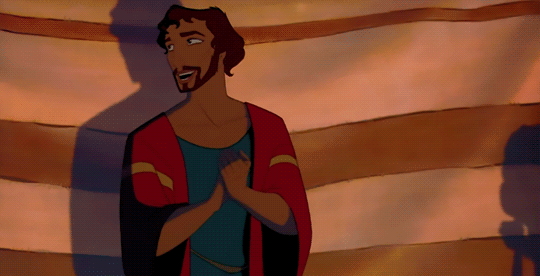

5) The Burning Bush- Who can ever forget this scene, when Moses meets God? Oh my gosh, it is such an amazingly powerful scene; from the wistful music that plays when Moses discovers the burning bush to the way the bush flowers after God speaks to Moses... I really have to hand it to the filmmakers; they’ve successfully managed to capture the powerful and almighty presence of God. I love how God chastises Moses for questioning Him, then immediately comforts Moses like a loving parent, promising him that He will be there with him, just like any parent would say. It truly is a wonderful, amazing scene that’ll always leave me breathless. Also worth mentioning is the moment before, when Moses gives Tzipporah a kiss in the morning, and after the scene, when he picks Tzipporah up and twirls her around a bit. It’s so sweet and touching to watch, and they’re just so believable as a married couple!

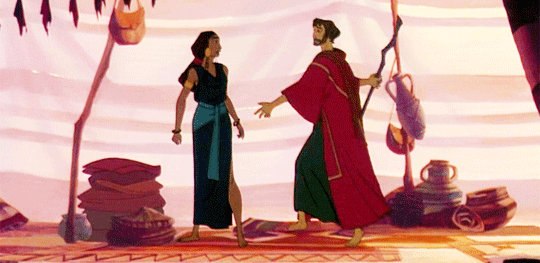

6) The Hieroglyph Nightmare- Despite how dark and horrifying the whole nightmare sequence is, I really love the animation in that scene. Seeing the events of the beginning from Moses’ perspective in the style of hieroglyph paintings is really impressive, but it’s also so chilling to actually see the soldiers tearing babies from their cradles, from their mothers’ arms, all while such terrifying music plays in the background. Every time I watch that scene, I get chills down my spine when I hear the screaming of the mothers and babies that underscores the scene, and then Moses seeing his biological mother sending him as an infant in the basket always pulls at my heart. And the inclusion of the sun disk, Aten, is quite a clever way of showing that God sent Moses the nightmare in a way he understands.

7) The Chariot Race/Moses and Rameses’ Bond- Honestly, this is what really made me love this movie’s portrayal of Moses. As someone who studied the Old Testament in high school, this scene really offers a unique, refreshing portrayal of a Biblical character. I haven’t seen too many Biblical movies, but most of the time, Moses has always been portrayed as old and serious, especially when he returns to free the Hebrews. Seeing Moses portrayed as young, handsome, mischievous, and playful really makes him so much more human, especially when we see how close he and Rameses are. This movie shows that Moses has fond memories of his upbringing in Egypt, and that he truly loves and cares about Rameses, which makes it so much more painful when he’s forced to be enemies with his adoptive brother. And his close bond with Rameses is truly one of the sweetest parts of this movie, especially when Rameses bear-hugs Moses in front of the entire court, which makes the gradual destruction of their brotherhood all the more tragic.
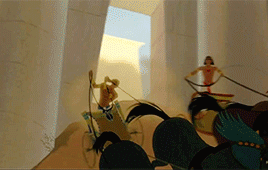

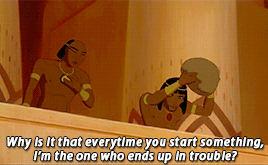
8) The Parting of the Red Sea- Apparently, it took the animators two years to do this scene, and it really shows. It’s so epic and gorgeous to watch, and the passage of the Hebrews through the partition was so amazing. I love how we saw the whale shark being illuminated through one of the walls of water; it truly adds to how majestic this whole scene is. On an emotional level, seeing Aaron being the first one to encourage the Hebrews to cross, and putting his faith in Moses, it’s quite a touching moment. And on a nightmare-fuel level, watching the walls of water collapse and drown all the Egyptian soldiers while pushing Rameses back to the shore is truly terrifying. Honestly, this is another scene that really shows God’s wrath and cruel mercy, and will always chill me whenever I watch it. It truly is a spectacular, sublime moment in this movie.



9) When You Believe- This song is truly a beautiful, touching piece of music, with incredibly uplifting lyrics, and for it to come after one of the most darkest and saddest moments in the movie, I find it quite fitting, actually. Despite the fact that Moses has officially lost Rameses for good, he’s finally succeeded in freeing his people, even though it has come at a heavy price. While Rameses giving Moses permission to leave Egypt with his people was such a bleak and despairing moment, this song offers a glimmer of hope in the darkness. In addition, the children singing “Mi Chamocha” was so sweet, especially as we see how the Hebrews gradually become more cheerful once they realize that they’re free for real. It goes from being sorrowful and tentatively hopeful to triumphant and optimistic, and it’s such a beautiful scene to watch. And of course, Whitney Houston and Mariah Carey’s version is truly the best as well.


10) Playing With The Big Boys- This song is quite a scary song, but it’s just such a cool scene to watch as well. I love the rhythmic invocation of the Egyptian pantheon, especially with how ominous the music is. But I also love how it shows a sharp contrast between how Moses invokes the power of God and how the priests invoke the power of their gods. Moses didn’t need any theatrics or magic tricks to turn his staff into a snake, while the priests literally use smoke and mirrors and elaborate rituals to turn their staffs into snakes. And the fact that the song ends with their snakes being consumed by the snake from Moses’ staff really foreshadows just who ends up winning in the long run, making it quite a good song. And plus, I also like to read the YouTube comments on this particular song, they’re just hilarious.
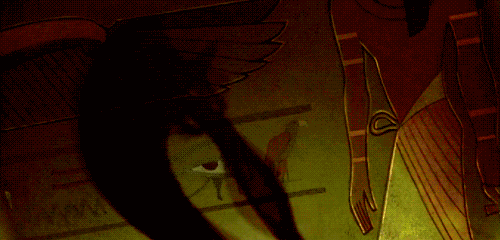
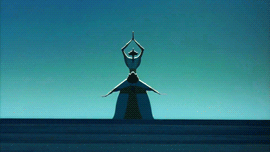

And those are my top moments of The Prince of Egypt. Of course, it’s an incomplete list, but this is all in no particular order, since I just love the whole movie so much. So happy anniversary to this beautiful, wonderful movie!
226 notes
·
View notes
Text
One of the reasons that the Three x Delgado!Master relationship is my favourite incarnation is that I think it’s still the best dynamic to date that shows the complexity of their relationship. Watching them reminds me a lot of Moses and Ramses in the Prince of Egypt; these two opposing forces who deep down care for each other but they’ve both taken such drastic paths that they’re not willing to let that affection compromise what is important to them.
Two key moments that highlight this for me; the first one being when the Master basically offers the Doctor his half in conquering the Universe. It’s so similar to Darth Vader or Kylo Ren offering their hands to Luke / Rey and you can tell this isn’t some dodgy deal they plan to go back on, he genuinely wants the Doctor to be on his side and is crushed into rage when the Doctor refuses and says how the Master just “doesn’t get it” and how he wants to see the Universe, not rule it.
The other moment is at the start of the Sea Devils when he and Jo visit the Master in prison and Pertwee just does such an amazing job showing how sad he is to see his friend locked up and when he’s talking to Jo about it you just see how crushed he is as you would be if someone you loved fell so far and had to be locked away.
Then for a long time we never really got this again, Ainley was so fun as the crazy camp Master but I never saw much emotional depth to him or felt a connection outside of a villain to the Doctor from Four till Seven. Roberts I know we don’t talk about but you could tell they were just going the Ainley route of “basic bad guy” except without any of the charm that Ainley brought.
And then we get to Simm - I’m going to skip over Jacobi because I haven’t really listened to the Big Finish stuff with him and we see little of him actually as The Master when he does ‘wake up’. The Ten and Simm dynamic is interesting because we get A LOT of feels from Ten’s end, where he brings back the sadness and loss that Pertwee had only even more amped up, but on Simm’s end - for the most part - he’s just straight up Joker crazy and full on hates the Doctor. I never got any sense that Simm’s Master had any affection left for the Doctor. And I’m not knocking this at all because, given everything up until this point, it makes sense that the Master’s resentment would be even more intense and he would want to humiliate the Doctor after SO many victories. I just felt like any lasting fondness that was there at the start was gone....That was until the end of the End of Time where the Master makes his sacrifice. That. Was awesome.
That is until they brought Simm back and the sacrifice wasn’t mentioned at all and he was just back to being as he was before End of Time, in fact even more opposed to the idea of standing with the Doctor, going as far to kill ‘himself’ instead of joining him.
And then we get Missy and I really, really enjoyed what they did with her. It wasn’t quite a ‘redemption arc’, she was still not a good person or her previous actions suddenly forgotten, which I liked. But there was a clear arc of how she was struggling with who she was and what she wanted to do vs the idea of having her friend back in her life and what she was willing to do to keep that rather than being against him. And in return Capaldi did a good job of returning that affection but also being, quite rightly, dubious and cautious of her. This, for me, felt like the closest we got to the Three X Delgado dynamic out of all the incarnations.
O!Master, so far, feels very much like they are returning to Simm’s Master’s way of things....which does feel like a regress. But then it could make sense if he is a previous incarnation; I just want them to make that clear for us because I feel like the Doctor, of all people, would like that clarified over what happened with Missy, not just the audience. That said, I do like O and Thirteen so far. I don’t need EVERY Doctor x Master relationship to be like Three x Delgado or Twelve x Missy (as both of those were different to each other). I just prefer something deeper than the Hero vs Crazy Bad Guy, like Batman and Joker, or Sherlock and Moriarty etc.
Anyway, those are some Doctor x Master thoughts for today. Feel free to hassle me in the comments. Peace!
39 notes
·
View notes
Text
OK full offense. Getting tired of all these redemption arc posts that just boil down to “Zuko’s is the only good redemption arc, only one that exists, can’t believe redemption arcs didn’t exist before atla.” Don’t get me wrong- Zuko had a great arc and is still my fav atla character he was my first fictional crush too don’t @ me. I loved him sm.
But I can’t take any of those posts too seriously because all it does is tell me that the op and people (only) screaming “zuko” in the notes haven’t really seen or read anything besides atla and star wars. Like?
Prince Vegeta predates Zuko by like, 30+ years. Like, Zuko’s season 1 “crimes” weren’t even that bad compared to Vegeta’s and many others. Vegeta blew up multiple planets for fun and viciously beat up a toddler (I clearly remember Gohan being like, 5?? when they first fought). Vegeta’s arc was long, like painfully so, and he made self-sabotaging selfish mistakes along the way. And yet people still bought his redemption in the end.
I brought up Vegeta first because after Zuko, at least some people remember him. But who is the internet really sleeping on? PICCOLO.
Piccolo (junior) also wanted to kill a bunch of people and enslave the world when we first met him. And he kidnapped a child after killing the child’s father (it’s understandable in context but that’s what happened lmao). Then he died saving the child. Which is what certain posts say make a bad redemption arc. Except, you know what? Piccolo’s arc was much more powerful than Vegeta’s imo and even if he didn’t come back to life after this, it would have been just as compelling. It had the right motivation, the right emotion, the right timing- in fact, it was so good that nobody even remembers it, we just see Piccolo as a good guy by default with unquestionable morals.
Oh, and you know who else should go on the list of redeemed princes? Moses from The Prince of Egypt. Definitely never been a villain, but still another prince that had to go through intense soul searching BEFORE Zuko.
This post got long but whatever, if you stacked every “there has only been 1 (one) successful redemption arc in existence” post together, it’d be even longer. But just to throw it out there too, a redemption “scene” is actually possible too. Gaston Leroux did it in 1911 and Andrew Lloyd Webber used that same scene in the 1980s.
The phantom of the opera’s redemption scene follows beat by beat what an arc also has:
Villain realizes error of his ways: sees negative impact of his actions on others, rather than himself
Villain tries to undo damage for the sake of others, rather than himself
Villain lives with consequences (and dies, but still had time to digest consequences)
And it was satisfying. If nothing else, everyone believed the change of heart was real. You actually can make your redemption moment an actual moment instead of 3 seasons of a show. You just have to make sure everything leading up to it makes sense.
#ramblings#also I saw somebody say jean valjean and you know what? VALID#other arcs exist guys#like I don't want to see the SAME arc again and again#I like seeing the same beats through different stories#don't wholesale COPY zuko's arc#that's not good writing that's plagiarism
18 notes
·
View notes
Text
Fantastic Four Vol. 1 Annual 1977
Tues Aug 27 2019 [12:59 AM] Wack'd: We open with Johnny testing an experimental racecar [12:59 AM] maxwellelvis: As he does [01:00 AM] Wack'd: Truly life is a hurricane here in...*checks notes*...Nassau County [01:00 AM] Wack'd: So Crystal and Lockjaw materialize in the backseat of the car and snatch Johnny away on some urgent business [01:01 AM] Wack'd: Poor Ted, who is the guy who designed this racecar! I feel bad for him despite the fact that he doesn't even rate a mention on Marvel Wiki [01:01 AM] KarkatTheDalek: That's another reason to feel bad for him, I think [01:02 AM] KarkatTheDalek: What must it be like to be a near complete non-entity... [01:02 AM] Wack'd: Marv Wolfman has apparently decided that Lockjaw's bark sounds like "wurf" and therefore his teleportation is called "wurfing". I agree with both these decisions [01:02 AM] KarkatTheDalek: That's amazing [01:03 AM] KarkatTheDalek: Who needs *BAMF* when you have wurf [01:03 AM] Bocaj: Amaze [01:03 AM] Wack'd: So the Great Refuge has been conquered! Again! Every goddamn week, with these people [01:03 AM] Wack'd: Sure
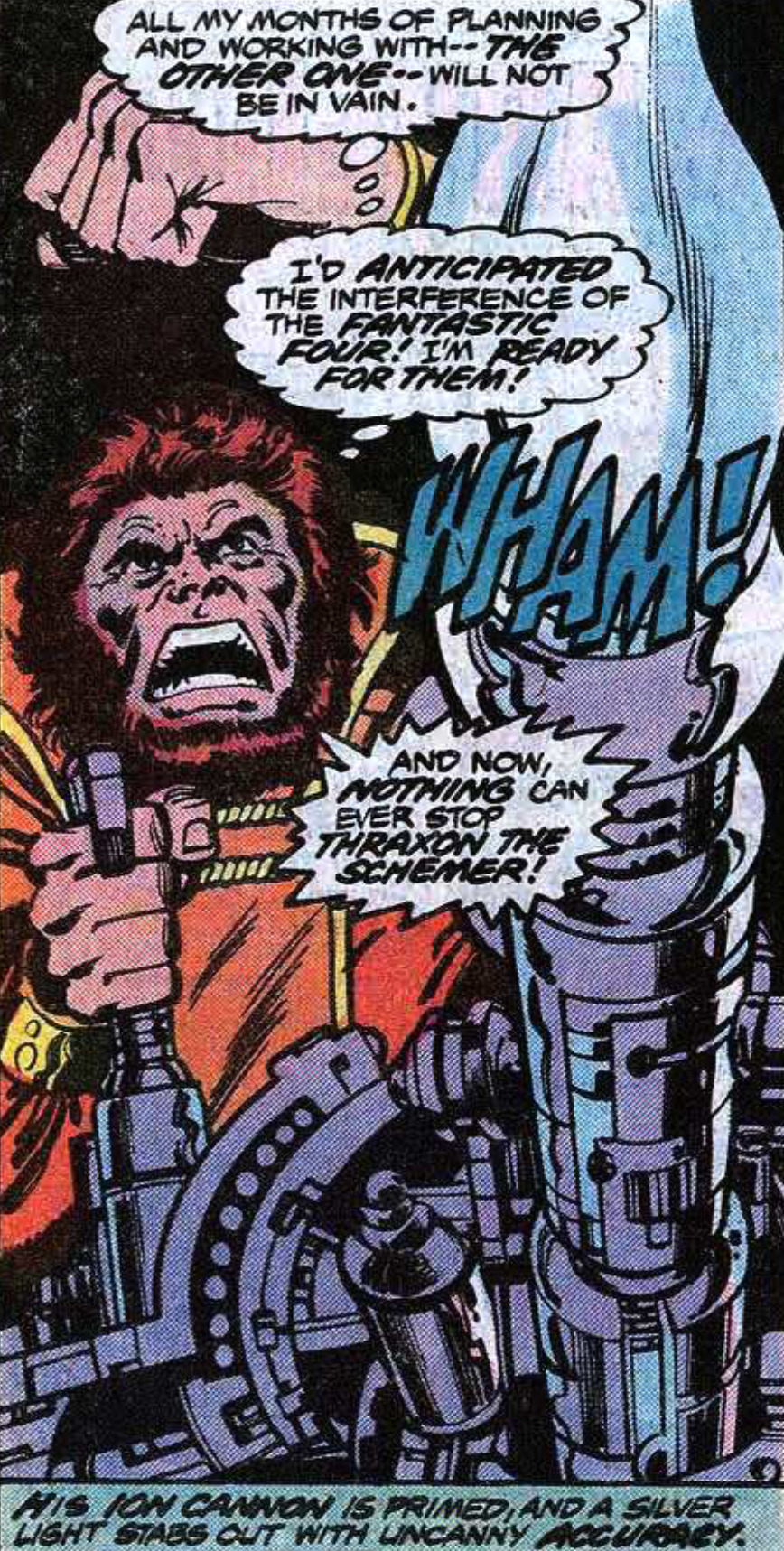
[01:04 AM] maxwellelvis: Is that one of the yetis? [01:04 AM] Wack'd: I...don't think so? I hope not [01:05 AM] Wack'd: He's a one-off villain from the Inhumans book [01:05 AM] Wack'd: He never appears again after this [01:05 AM] Wack'd: Johnny blows up his gun but he has a force field, which is very good [01:06 AM] Wack'd: Also apparently Crystal can now call down lightning from the sky like she's Storm or something [01:06 AM] Wack'd: Also tornadoes! She has definitely been confused for Storm [01:06 AM] Bocaj: tornadoes is just air [01:06 AM] Wack'd: Not that this does any good. It's a really good force field you guys [01:07 AM] Wack'd: Honestly, like. He would have to just sit in there forever, I think? Not really conducive to ruling a city. [01:07 AM] Wack'd: Maybe he can move the force field around, I dunno [01:08 AM] maxwellelvis: Somebody get some club soda! [01:08 AM] Wack'd: Meanwhile in Hollywood a Fantastic Four movie is being made. It is going poorly [01:09 AM] Wack'd: Sue is irritated that the actress playing her looks nothing like her and is wearing a low-cut bathing suit. Ben is irritated he's been replaced by a giant robot [01:09 AM] Wack'd: Reed is irritated Johnny's been written out because the effects are too expensive [01:10 AM] maxwellelvis: Somewhere, Jessica Alba and Carl Ciarfalio feel insulted. So does HERBIE. And none are sure why. [01:10 AM] Wack'd: And in case you're wondering the Fantastic Four cartoon series that couldn't get the rights to Johnny because they were tangled up in a movie deal had entered production at roughly this time [01:10 AM] maxwellelvis: Spooky [01:10 AM] Wack'd: Or, you know [01:10 AM] Wack'd: People at Marvel knew what was up [01:11 AM] Wack'd: Seems more likely than precognition [01:11 AM] Wack'd: Why do I feel like this guy is a parody of someone specific?
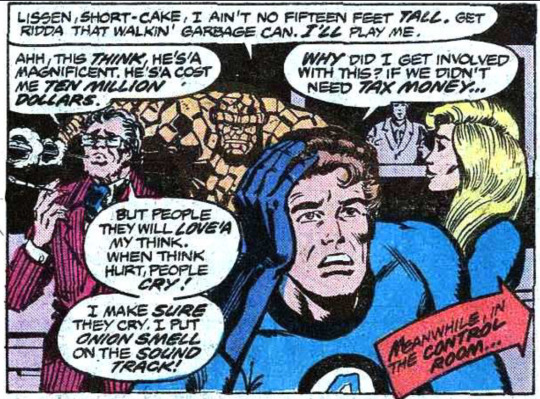
[01:12 AM] maxwellelvis: Dino. [01:12 AM] maxwellelvis: That's who. [01:13 AM] Wack'd: ...from The Flintstones? [01:13 AM] maxwellelvis: The robot, the accent, the emphasis on gimmicks [01:13 AM] maxwellelvis: DeLaurentiis. [01:14 AM] Wack'd: Oooooh [01:14 AM] Wack'd: Brainfart [01:14 AM] maxwellelvis: and of course, the glasses [01:14 AM] Wack'd: I know of him by vague reputation but was unaware of his...peculiarities [01:15 AM] maxwellelvis: The onion smell, I thought was a reference to SenSurround, but I don't know if he had anything to do with *Earthquake!* [01:16 AM] maxwellelvis: But he was an odd man. [01:16 AM] Wack'd: Anyway the giant Thing robot goes berserk. Who could've seen this coming [01:17 AM] Wack'd: Oh hey at least one person can be proven to have liked The Gong Show 😛

[01:18 AM] maxwellelvis: The emphasis on spectacle that the robot provides sounds just like him. As does cutting Johnny from the movie entirely to save on expenses. This is the guy who had a big argument with Sam Raimi over how many explosions should be in the climatic battle in Army of Darkness, after all. [01:18 AM] maxwellelvis: That caricature of Jamie Farr is kinder to him than real life ever was. [01:19 AM] Wack'd: He was kind of transphobic so I'm okay with this [01:20 AM] Wack'd: Ben throws a gong through the robot's neck, decapitating it [01:20 AM] Wack'd: I did not see The Gong Show being plot-relevant but here we are [01:21 AM] maxwellelvis: The Gong Show was probably taped, but I'm pretty sure that's gonna make the final cut anyways. [01:22 AM] maxwellelvis: If anyone has the connections to get the Four to sign off on that, it's Chuck Barris. [01:22 AM] Wack'd: They do keep it in the show [01:22 AM] Wack'd: It gets a 6 [01:22 AM] maxwellelvis: Heh [01:22 AM] maxwellelvis: That's good. [01:24 AM] Wack'd: So Johnny, Crystal, and Lockjaw come back and wurf Ben back to the Great Refuge [01:24 AM] Wack'd: And also stopped to pick up Reed and Sue off-panel [01:25 AM] maxwellelvis: Probably because Ben would have the funniest reaction. I'm getting the feeling this Annual is focusing on humor. [01:25 AM] Wack'd: Well, that bit was [01:25 AM] Wack'd: Ben mostly just grumbles that they ruined his chances of a regular gig [01:26 AM] maxwellelvis: I could see Ben as the new Unknown Comic, honestly. [01:26 AM] Wack'd: So uh apparently a buncha stuff happened in the Inhumans book [01:26 AM] Wack'd: The Great Refuge was destroyed and the Royal Family retreated to space [01:26 AM] Wack'd: Thraxon tried to organize a rebuilding effort but Pietro accused him of trying to usurp Black Bolt and got real mad [01:26 AM] maxwellelvis: Did they finally build Attilan yet? [01:27 AM] Wack'd: It's just what the Great Refuge is called apparently [01:27 AM] maxwellelvis: Huh. [01:27 AM] Wack'd: So anyway Thraxon points out that Pietro is not Inhuman and this gets all the other Inhumans sans Crystal to turn on him [01:28 AM] Wack'd: The Inhuman Royal Family returned and Thraxon kicked all their asses [01:29 AM] Wack'd: We're spending a lot of page time on what's frankly kinda a foregone conclusion, honestly. I'm skipping over a lot of fight scenes that impact literally nothing [01:31 AM] Wack'd: The seldom-seen little sibling of "Sue tries to do something awesome and gets her ass kicked", "Sue does something awesome and literally falls unconscious from the strain"

[01:31 AM] Wack'd: Apparently Thraxon expanded his force field over the whole city. So that's his game [01:32 AM] Wack'd: But not anymore [01:32 AM] Wack'd: Another part of Thraxon's plan is to literally strap the Royal Family and Pietro to a rocket and shoot them into space [01:33 AM] Wack'd: You know, the place they just came back from [01:33 AM] Wack'd: Sure [01:33 AM] maxwellelvis: At least this time she was just faint for a moment and not out for the rest of the fight. [01:34 AM] Wack'd: So fortunately Thraxton loses his powers because the person who gave them to him, "the Dreaded One", has deserted him [01:34 AM] Wack'd: For some reason [01:35 AM] Wack'd: The Four take their own rocket and follow the Inhuman rocket and-- [01:35 AM] Wack'd: C'mon I just made a Mystery Science Theater 3000 joke
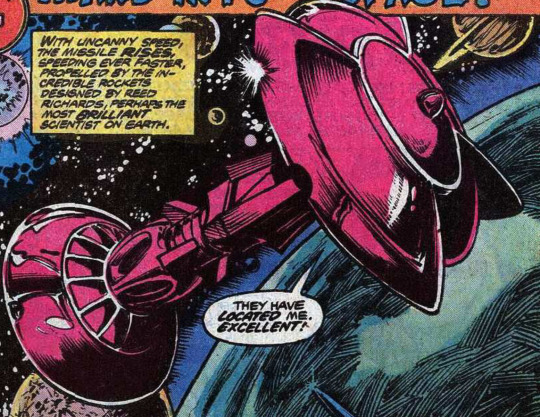
[01:36 AM] Wack'd: It's weird realizing only this year do the Four suddenly exist in a world containing Star Wars

[01:38 AM] Wack'd: fuck ooooooooff
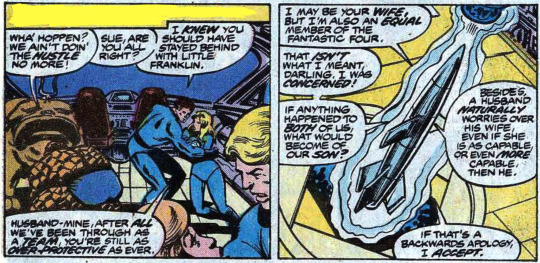
[01:41 AM] Wack'd: I'll save you the trouble--a Nova villain who menaced the Four and the Inhumans enough to make it into two issues of the Fantastic Four: Foes miniseries. Also fought the New Warriors and Night Thrasher. Last seen in a Howling Commandos arc from 2016

[01:42 AM] maxwellelvis: He's terribly mysterious [01:43 AM] Wack'd: Character shilling! Also apparently Aaron's staff did eat the staffs of Egyptians what were also turned into snakes. Did not learn this in Hebrew school

[01:44 AM] maxwellelvis: What were you taught? [01:45 AM] Wack'd: Moses turns his staff into a snake to prove God is real but Pharaoh writes it off as a stupid trick [01:46 AM] Wack'd: Presumably because we as kids would be a bit baffled by the idea that all other Gods are fake but also Egyptians had real magic on hand [01:46 AM] Wack'd: It is indeed a bit of a puzzlement [01:46 AM] maxwellelvis: Yeah, the version I'm aware of had the Pharaoh bring in his best magicians to show he's not impressed, but Moses is the one who shows that the other is doing a cheap trick, because his snake is bigger and kills the other two. [01:47 AM] maxwellelvis: Prince of Egypt makes it into a big smoke-and-mirrors routine. [01:47 AM] maxwellelvis: Literally. [01:47 AM] Wack'd: There's no, uh. Rationale in the Bible? [01:47 AM] Wack'd: It's literally just "some other Egyptians turned up and turned their staffs into snakes also, and then Aaron's snake ate them" [01:48 AM] Wack'd: No big reveal or anything [01:51 AM] Wack'd: So anyway this nameless extra from Exodus is exiled for his failure and finds a magic amulet that gives him superpowers and the ability to live forever [01:52 AM] Wack'd: And now he wants to harness Black Bolt's power to hypnotize all of Earth. Somehow. [01:53 AM] maxwellelvis: That's not how his power works. His voice isn't hypnotic, it blows stuff to smitheroons. [01:53 AM] Wack'd: He basically wants to use Black Bolt as a battery to power his hypnosis [01:53 AM] maxwellelvis: Ahh [01:55 AM] Wack'd: Anyway they scuffle for a while before Sphinx gets nervous he might actually get his ass kicked and throws them all out the airlock [01:55 AM] Wack'd: Lockjaw has meanwhile freed the Inhumans. He could've done this at any time probably but okay [01:57 AM] Wack'd: Look dude, sure you manage to miraculously crawl your way to the 21st century, but you still don't even have 100 appearances. Godly power only means something if you have popularity power to back it up

[01:58 AM] Wack'd: ...is this a thing Black Bolt can do? I feel like the answer is "no"

[01:59 AM] Wack'd: Anyway the day is saved by...Black Bolt [01:59 AM] Wack'd: Not much of an Fantastic Four annual [02:00 AM] Wack'd: Sphinx is blasted into space and then everyone goes home [02:00 AM] Wack'd: The end [02:00 AM] maxwellelvis: SPHINX!
2 notes
·
View notes
Text
drabble for @ardenssolis that is way too long so it gets a rm.
he sobs into his father’s arms, clinging to him and mumbling how relieved he is that ramses does not hate him. it takes quite a time for ozymandias to calm the young heroic spirit down but once he does, the boy mumbles that he wishes to explain himself. with his head resting against his father’s shoulder, the little prince hesitates, trying to bring his memories into order... and then, he simply starts at the beginning :
meryatum remembers sitting on his mother’s lap, some of the other wives laughing with her. “he looks so much like him.” one says and nefertari chuckles “he does - but only if ramses had very chubby cheeks.” he giggles when she gently pinches his cheeks... though she lets go quickly when a coughing fit shakes her body.
he does not remember much from the days after she dies. he had been too young to process the meaning of death. somehow in his head, his mother had simply gone somewhere and would come back again. but he does remember crying when nefertari came to him at night to say goodbye. how he could not touch her. and how devastated she looked. only then did he understand that he would not see her again - and he cried and cried, his voice grew hoarse, until his eyes became red and puffy. until strong arms lifted him up, holding him gently and a soft voice promised him “it will be alright, little sun. I am here.” that night he fell asleep in his father’s arms for the first time.
...and afterwards, he suddenly refused to leave ramses side. when his tutors came for him he would follow. when he had to train he would. but any other minute, he’d rush to his father’s side. a silent companion by the pharaoh’s side, his wide golden eyes watching the king ruling, a silent admiration building up within him. he also learned to read between the lines.
it had not been long after his mother’s death that he watched his father again from the sidelines. and as ramses waved the viziers and servants away, meryatum hurries to stand up when he sees his father rub his temples, cover his eyes for just a moment. it could very well be just signs of the long day, of the pharaoh being tired. but the little prince does not think so. he takes his father’s hand into his, looking up with a calm face - and when ramses lifts him up, he rests his other hand on his cheek. “it will be alright, father. I am here.”
it’s around that time that meryatum starts to notice ghosts more. he usually ignores them, unless it is his older brother amun. whenever ramses lacks the time to tug him to sleep, his brother would be there. people start mumbling how different meryatum is compared to his brothers. they all seek their father’s attention, but while the others train every day, the youngest of nefertari’s children does not - he is talented with a sword, but he seems to prefer the methods of fighting his mother had used : politics. words. there is not a single day one cannot find the prince hovering over scrolls. the shadows under his eyes grow stronger until after a few years they are simply a permanent part of meryatum.
and even as he grows older, he remains a shadow at his father’s side. always watching, carefully calculating the court. until ramses turns to him and asks for his opinion. and he knows what this is. a test : show me what your studies have done for you. show me all your hard work. and he does. he is incredibly proud that day - proud that his father approved of his advice. he feels so grown up. though he still is a sensitive soul, a joyful heart. he does not magically mature, the other wives still scold him for sneaking in frogs. or tell his father who seems mildly amused.
the mumbling behind his back however does not fully stop. it grows quieter, but not all voices can be stopped. but he does not pay them any attention. not until he hears someone say ‘he reminds me of his uncle. how cruel of the gods to give the pharaoh a child that behaves that way’ ‘and then his bond to death, it seems to follow him. perhaps that claimed his mother’s life’.
he does not leave his room for days. he refuses to see his tutors, his siblings and their mothers. it’s only when his father simply enters the room ( the pharaoh does not need to ask for permission ) that he has to answer for his behavior. “why are you hiding in here?” it’s such a simple question. and meryatum wishes he could simply cry and tell ramses. just have the other embrace him again and tell him that nothing is his fault. but then he would need to admit that he had researched his uncle. or that he could still see his dead brother. or... ask his father if nefertari’s death truly was his fault. what if his father secretly loathed him? ‘ah now that you know, you may as well disappear and never come back’ it’s a terribly childish fear he knows. but he simply stares at his feet and sighs “I lost to one of my little brothers during training...” what a stupid lie. he had never before been upset over such a thing. but instead of being called out for that lie, ramses simply sighs and says that it is unlike him and that he should return to his studies - he’s strong with his mind after all. and then his father leaves. it’s the first, but not last time, meryatum lies over his feelings. whenever the pharaoh notices a downcast look on his son’s face, the son answers with a lie. and his heart grows heavier.
and then he is sent away - over the years meryatum had proved himself a capable prince. sharp with mind and sword. after his first battle, people had stopped doubting his physical abilities. he is sent to sinai and like the dutiful son that he is, he goes. what he did not expect was to find his uncle’s people there. and his cousins. he acts as if he is a simple young merchant from egypt, not its prince. something tells him he would only be met with distrust if he admitted to being the son of ramses. he is called into a tent where he meets a man that everyone calls moshe. but he knows in his heart who that man is.
when everyone sleeps he sneaks outside to sit on a stone and simply stare at the nightsky. he does not move when moses sits besides him. “you look a great lot like him - but you take after your mother too. it’s something within your eyes...” “...you do not have the right to speak of them! not after what you’ve done.” he turns his head, golden eyes filled with anger... which vanishes when he sees the man’s expression. endless grief. “I never meant for the suffering that I caused. I simply wished for my people to be free.” and meryatum understands. having been here, having watched the people be free to laugh, to cry, to live. how could he find it a bad thing. and then moses cries silent tears. he apologizes but “while we ate you mentioned your mother had passed away.” “yes, when I was but a child” “I never knew. for me, it’s as if she died today.”
meryatum returns to his father’s side months later. unsure what to tell ramses, he simply goes for a kind truth, that lacks certain detail. when they eat alone together, he mentions how he had been taken in by some of the hebrew people. how their leader moshe had welcomed him warmly and that he had two sons. he notices the hesitation in his father’s movements, but his expression is unreadable as always as he says ‘is that so.’ but he could swear, that as he left the room, he saw a bittersweet smile on the pharaoh’s face.
later he is made the high priest of ra. nobody seemed too surprised... well nobody but meryatum. “what’s with that face? you were stuck to your father’s side since your childhood. who else could be high priest? it shows his trust in you.” trust in him. he, the young man who still, in a childish corner of his heart believed himself to be at fault for his mother’s death. how could he deserve such a position. how could he be a priest of ra, when he still talked every night to the ghost of the deceased?
but he does not protest and he does take to his position easily. he only wished his father would stop trying to find a wife for him, can he not see he is more interested in his work than whatever poor soul waits in his room, trying to seduce him only for meryatum to ignore her in favor of a scroll?
perhaps it is his position as son and high priest, or perhaps that over the years watching his father, he had never lost his respect but definitely had lost a great deal of fear. whenever one does something in their position that does not seem right by the other, they start a disagreement. it never grows loud, but where others would quickly bow their head, meryatum stubbornly refuses to look away from his father’s intense stare. maybe that is why they actually work together just perfectly.
and then he grows weaker. the first time he notices it, is when he walks by ramses side and suddenly he nearly falls to the ground - though his father catches him. he laughs it off, saying he must have stumbled. or that perhaps he had studied too long into the night again. upon these words he is sent to his room to rest.
...but he does not grow better over time but worse. and he recognizes the signs, he recognizes it in his father’s face. whatever had claimed his mother, would claim him. and at night he curses and cries, for causing pain to his parent once more. but maybe this is fit punishment. perhaps those whispers from back then were right. he had brought something upon his mother. something that ended her life. something that followed him and now would kill him.
he is still visited by his brother from time to time and at some point the priest watches amun, a sadness overtaking him. amun by now looked like he could be his son, not his oldest brother. it’s a fate cruel enough to have meryatum call a servant to him the next day.
“i have a task for you. something you must do for me when I am dead - but before I am buried. something you cannot tell anyone. you must make sure that my soul never reaches the afterlife.”
#ardenssolis#❝ headcanon ❞ ( meryatum ).#❝ musings ❞ ( meryatum ).#[ SHI I LOVE U I PROMISE ]#[ im sorry its so long and bad ..... ]
1 note
·
View note